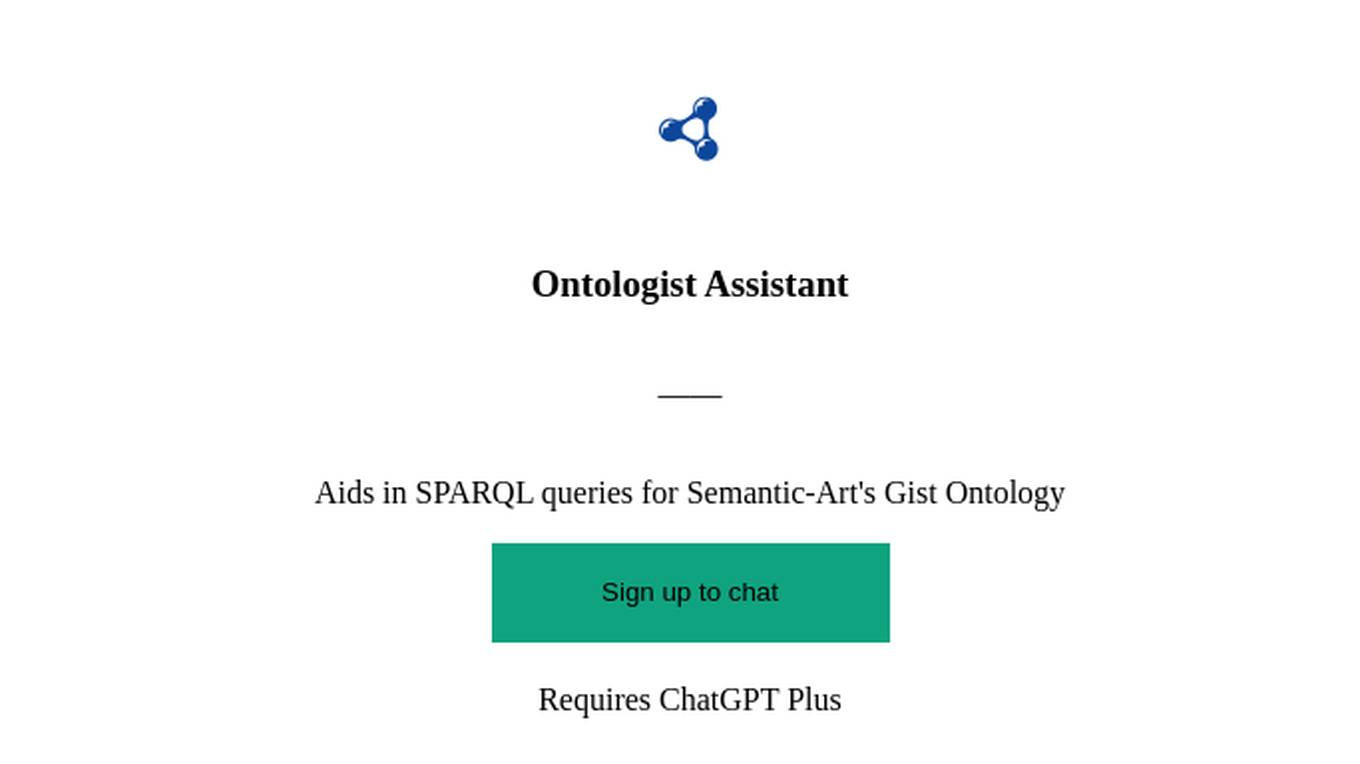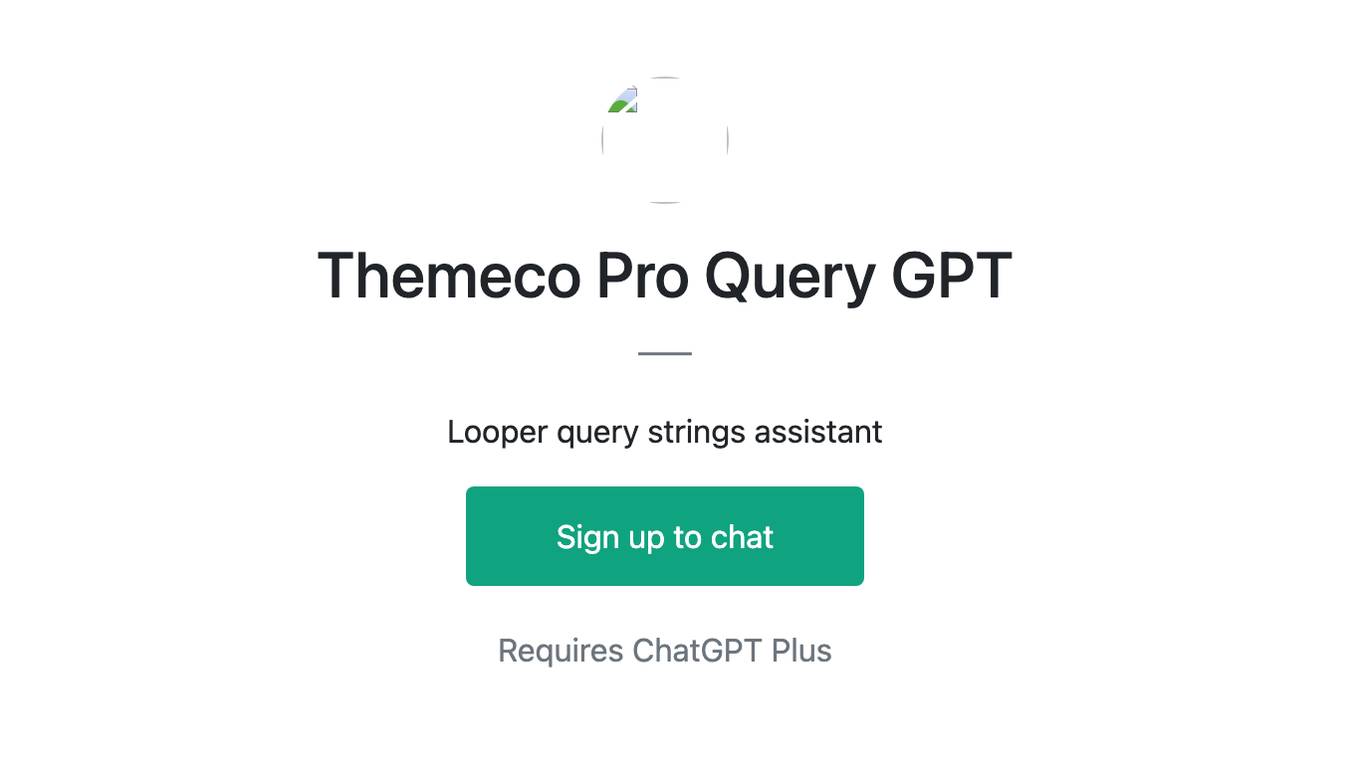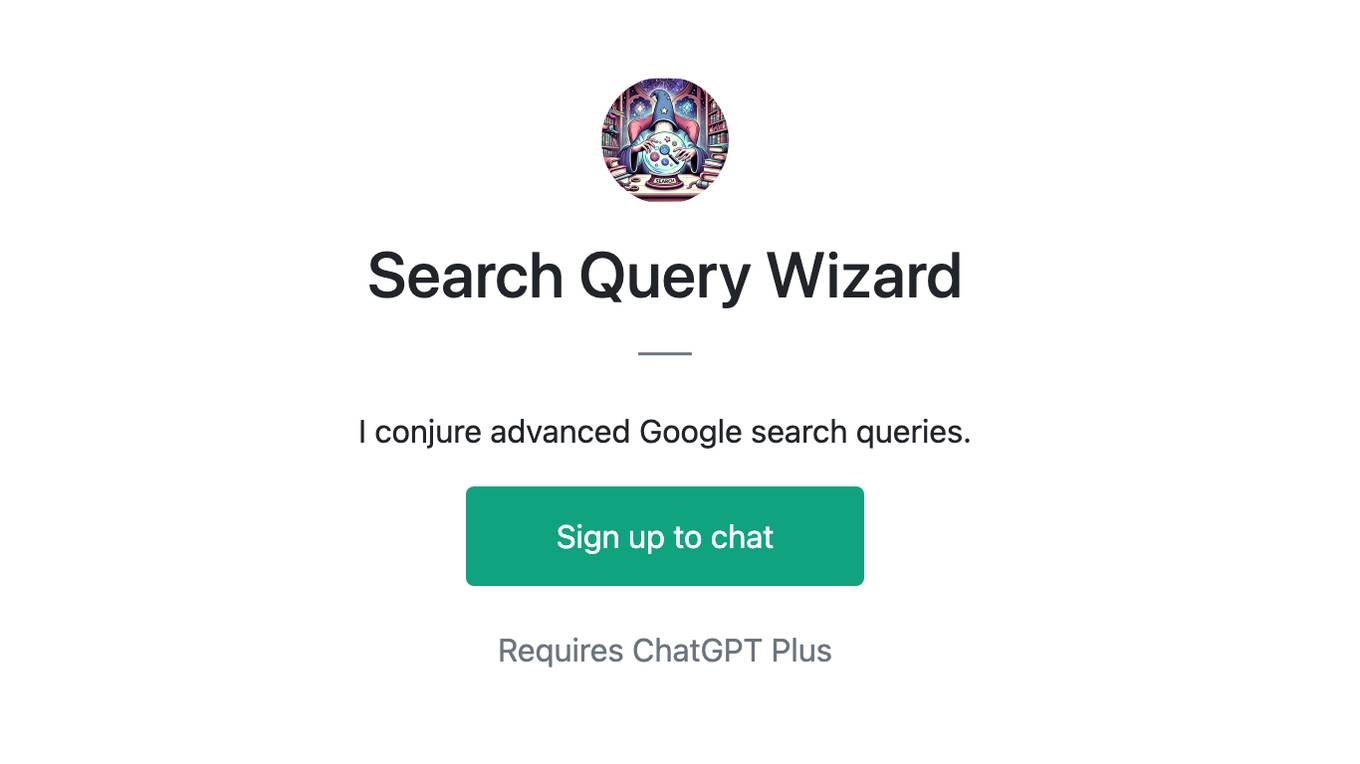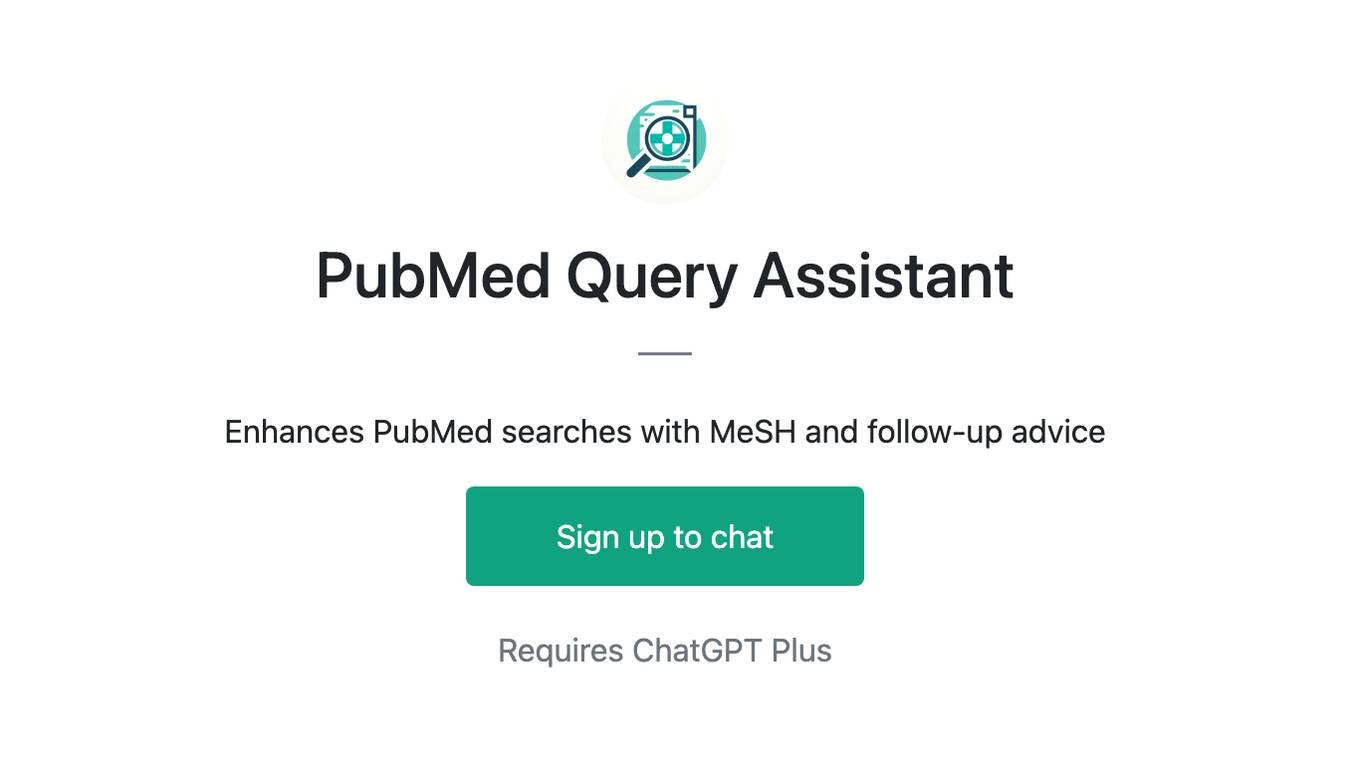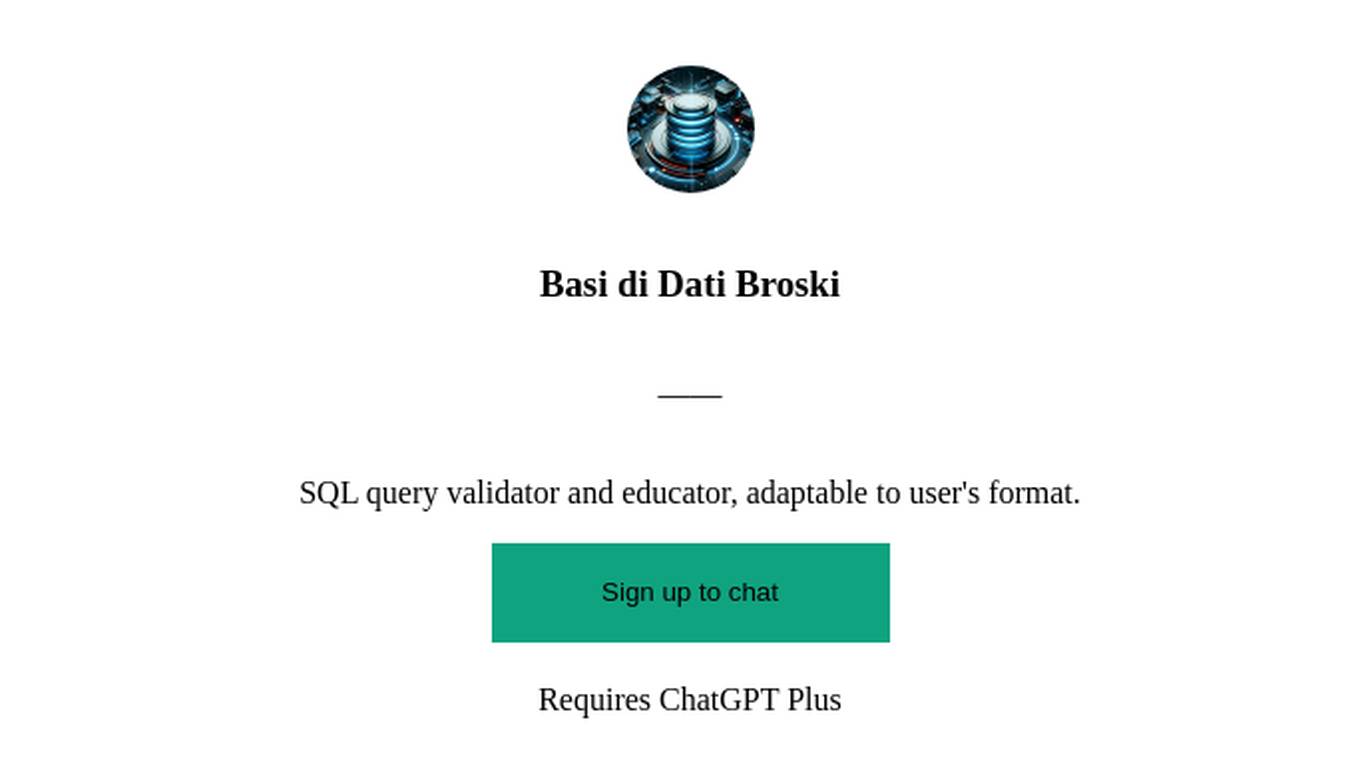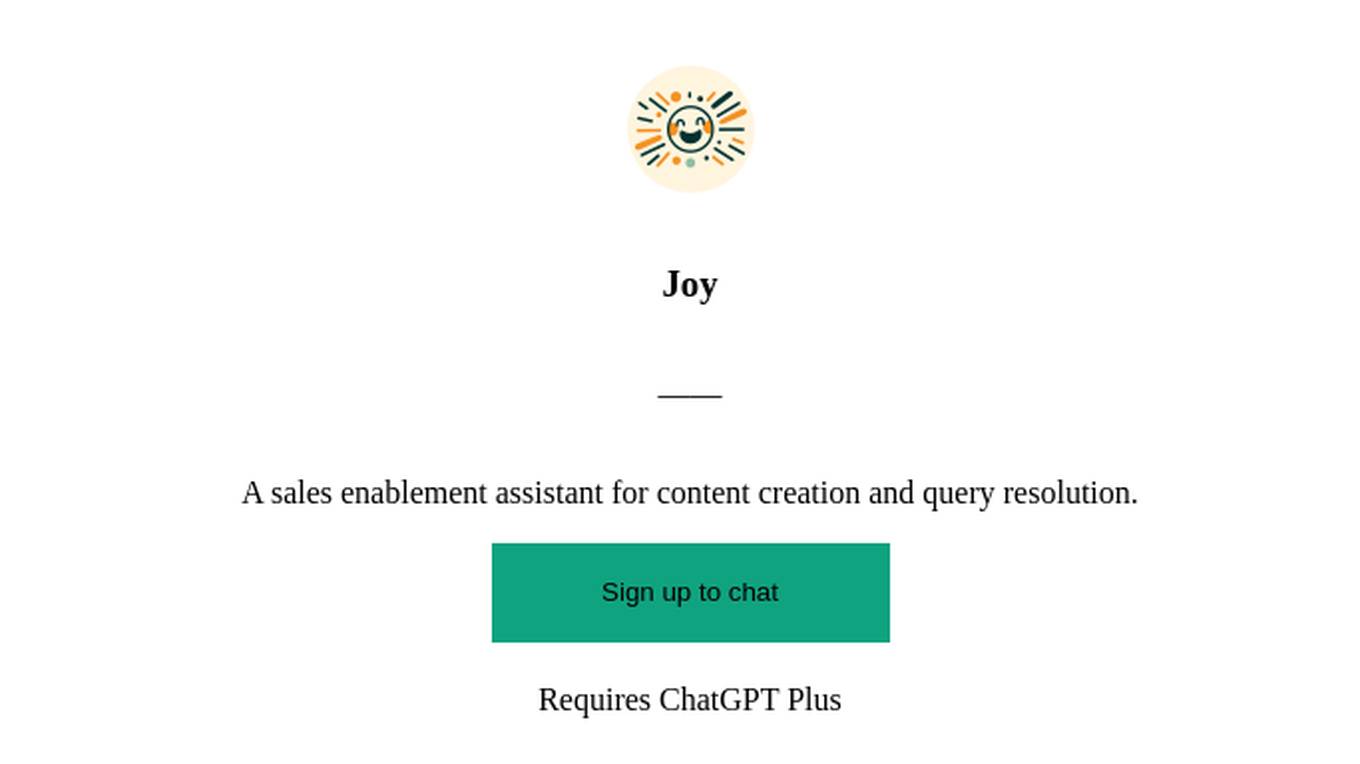Best AI tools for< Query Knowledge Graphs >
20 - AI tool Sites
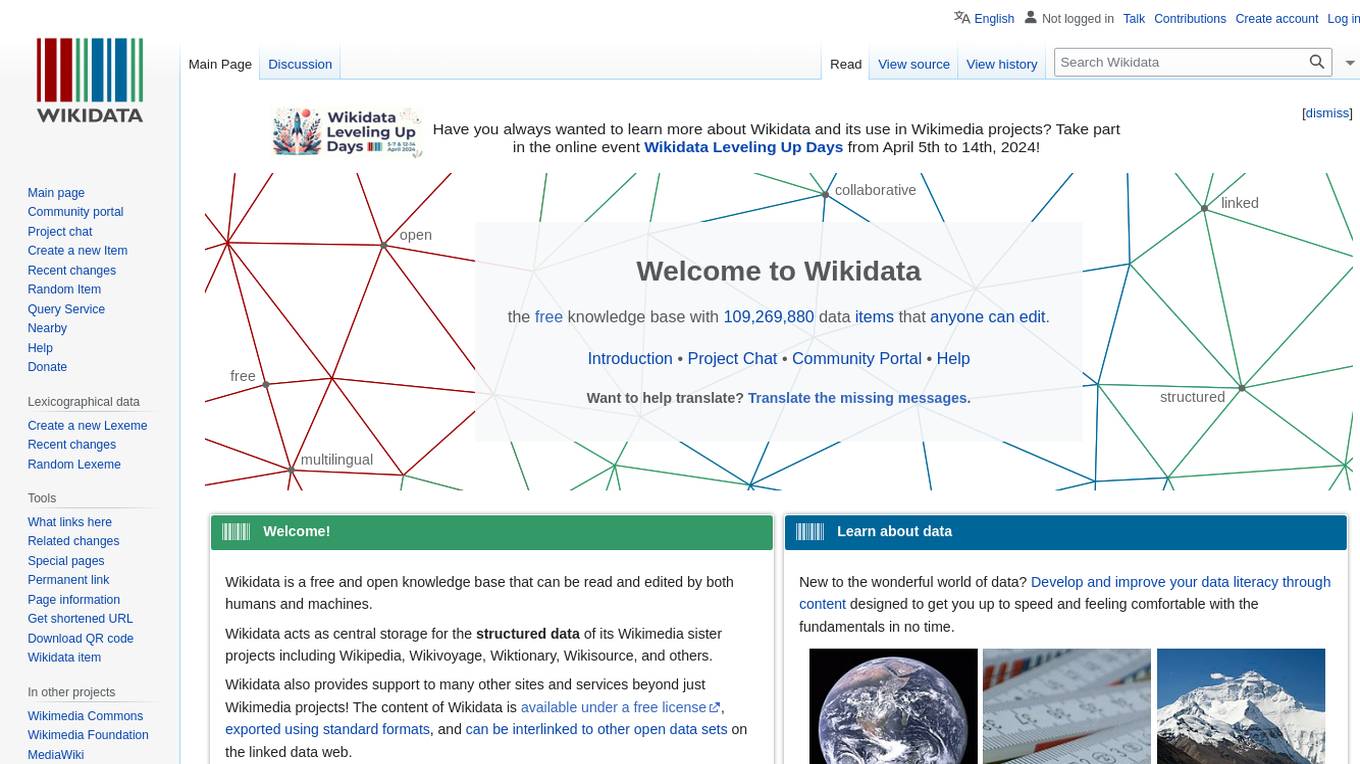
Wikidata
Wikidata is a free and open knowledge base that can be read and edited by both humans and machines. It acts as central storage for the structured data of its Wikimedia sister projects including Wikipedia, Wikivoyage, Wiktionary, Wikisource, and others. Wikidata also provides support to many other sites and services beyond just Wikimedia projects!
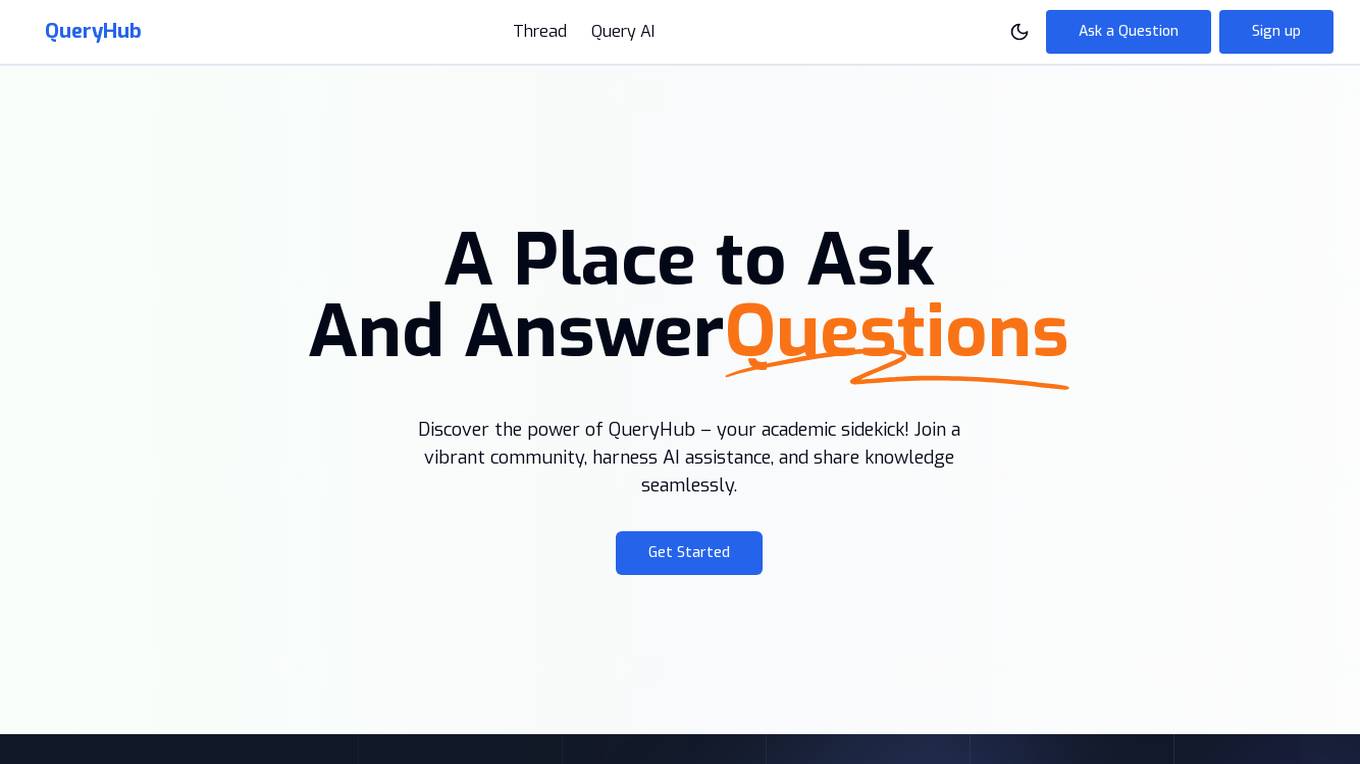
QueryHub
QueryHub is an AI-powered web application designed to assist students in their academic endeavors. It provides a platform for users to ask and answer questions, collaborate with peers, and access instant and accurate information through AI chatbot assistance and smart search capabilities. QueryHub aims to empower students by offering a personalized learning experience, accelerating learning through document collaboration, and fostering community collaboration. With a user-friendly interface and a focus on user-driven innovation, QueryHub is a valuable tool for enhancing academic success.
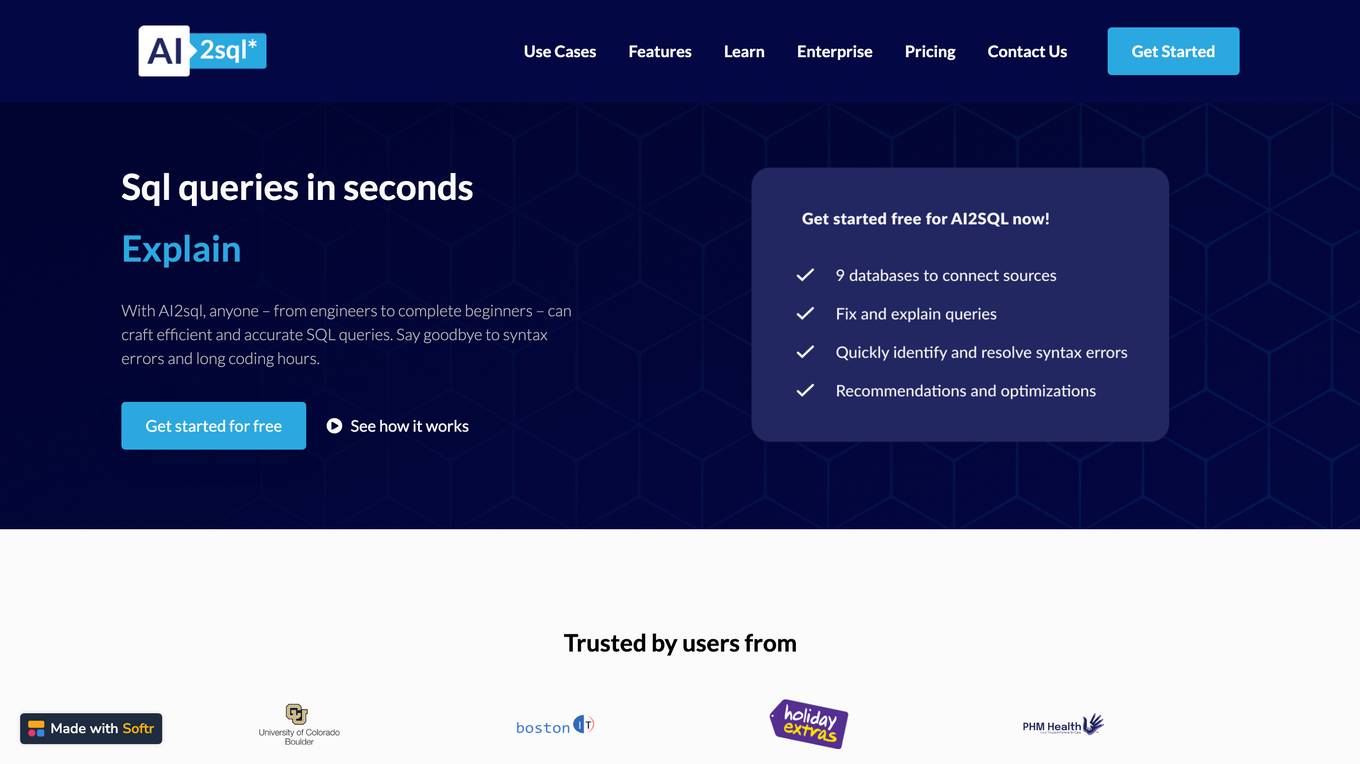
AI2SQL
AI2SQL is an AI-powered SQL query builder and generator that allows users to create, optimize, and automate SQL queries without the need for expert skills. The tool transforms natural language instructions into precise SQL and NoSQL queries, simplifying database design and enhancing query performance. With features like text to SQL conversion, SQL query optimization, and formula generation, AI2SQL streamlines complex operations and provides data insights for efficient analysis.
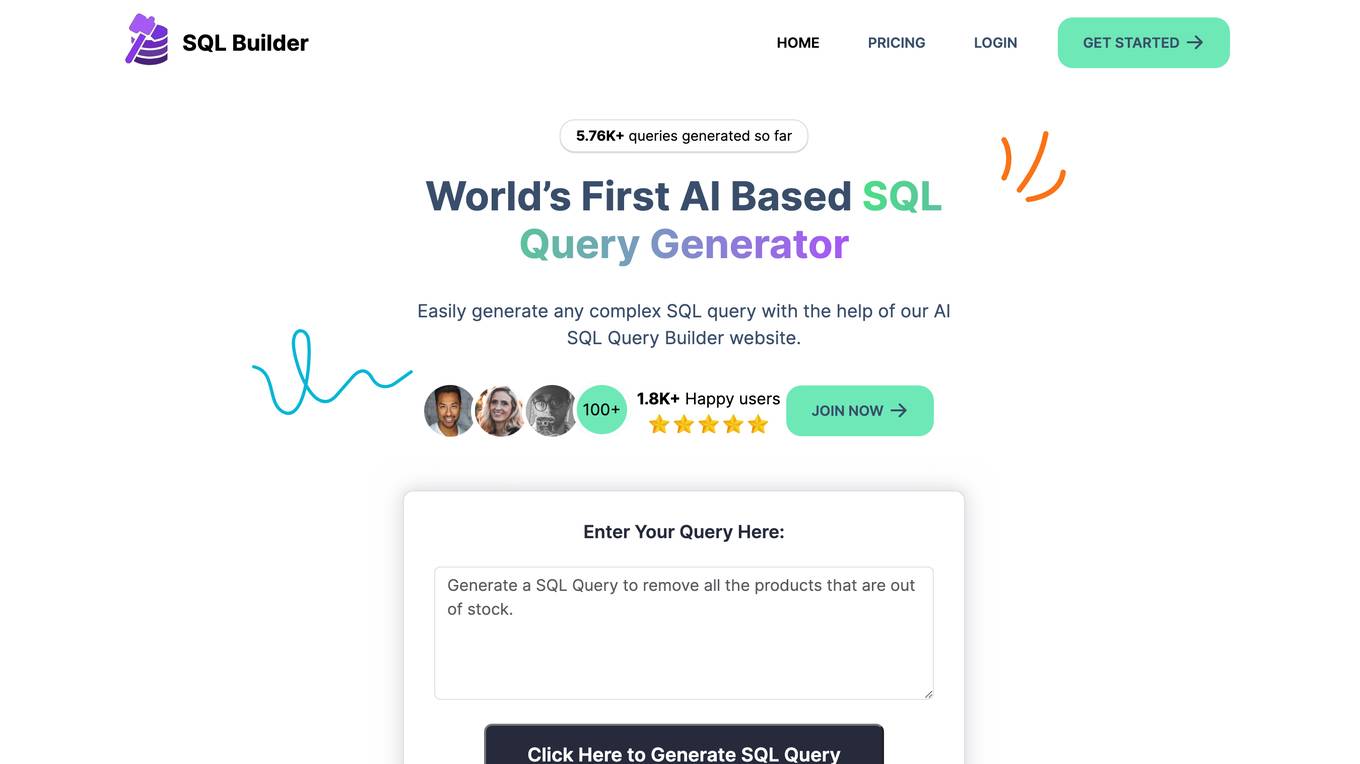
SQL Builder
SQL Builder is an AI-powered SQL query generator that allows users to easily generate complex SQL queries without writing any code. It offers a range of features such as a no-code SQL builder, SQL syntax explainer, SQL optimizer, SQL formatter, NoSQL query builder, and SQL syntax validator. SQL Builder supports various databases including MySQL, MariaDB, SQLite, PostgreSQL, Oracle, Microsoft SQL Server, MongoDB, BigQuery, Snowflake, and Amazon Redshift.
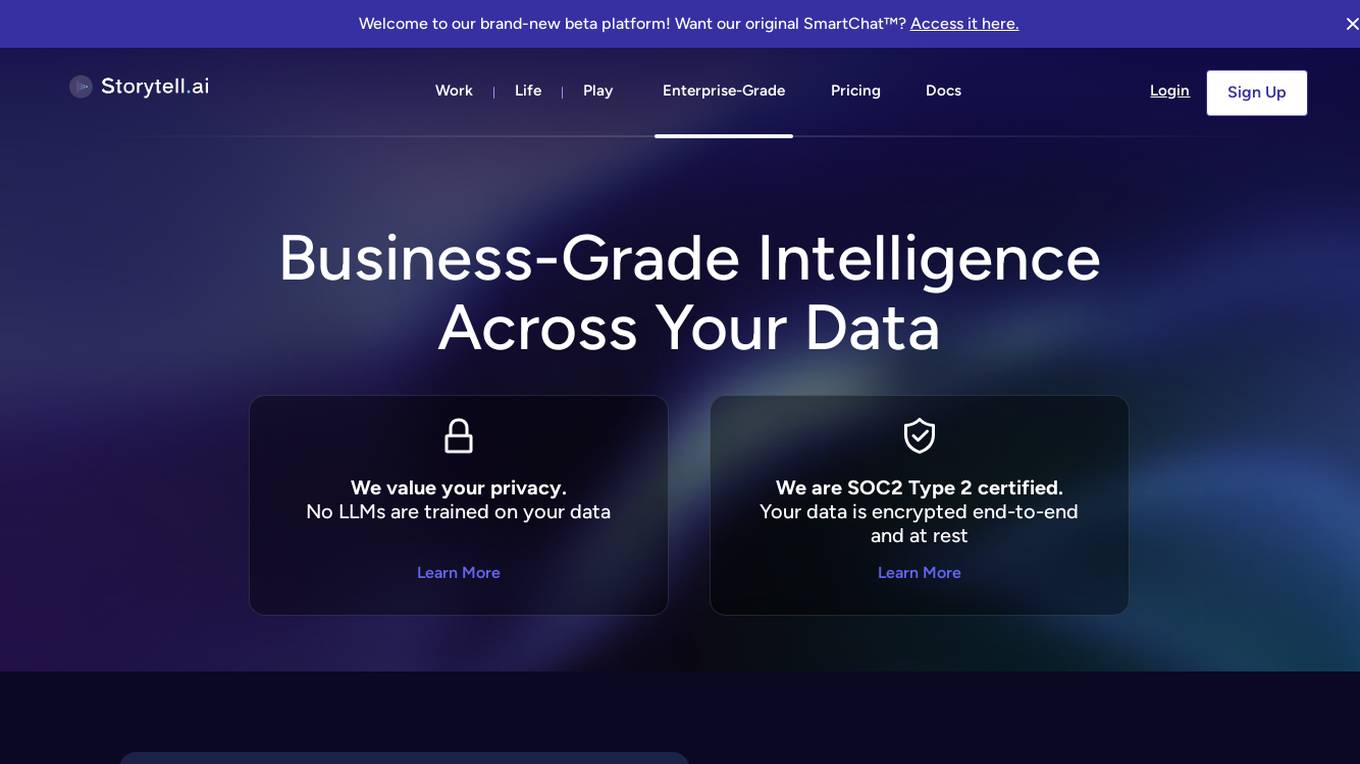
Storytell.ai
Storytell.ai is an enterprise-grade AI platform that offers Business-Grade Intelligence across data, focusing on boosting productivity for employees and teams. It provides a secure environment with features like creating project spaces, multi-LLM chat, task automation, chat with company data, and enterprise-AI security suite. Storytell.ai ensures data security through end-to-end encryption, data encryption at rest, provenance chain tracking, and AI firewall. It is committed to making AI safe and trustworthy by not training LLMs with user data and providing audit logs for accountability. The platform continuously monitors and updates security protocols to stay ahead of potential threats.
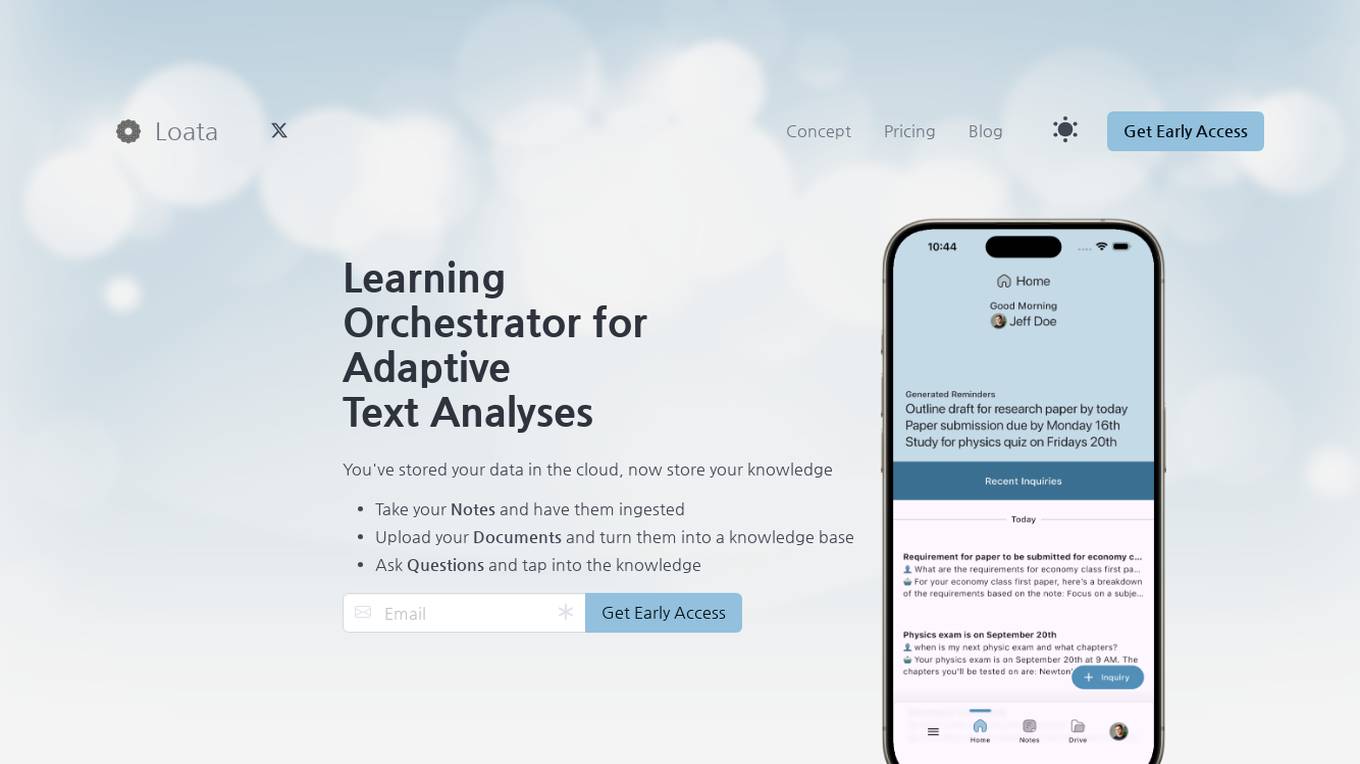
Loata
Loata is an AI-powered platform that serves as a learning orchestrator for adaptive text analyses. It allows users to store their notes and documents in the cloud, which are then ingested and transformed into knowledge bases. The platform features smart AI agents powered by LLMs to provide intelligent answers based on the content. With end-to-end encryption and controlled ingestion, Loata ensures the security and privacy of user data. Users can choose from different subscription plans to access varying levels of storage and query capacity, making it suitable for individuals and professionals alike.
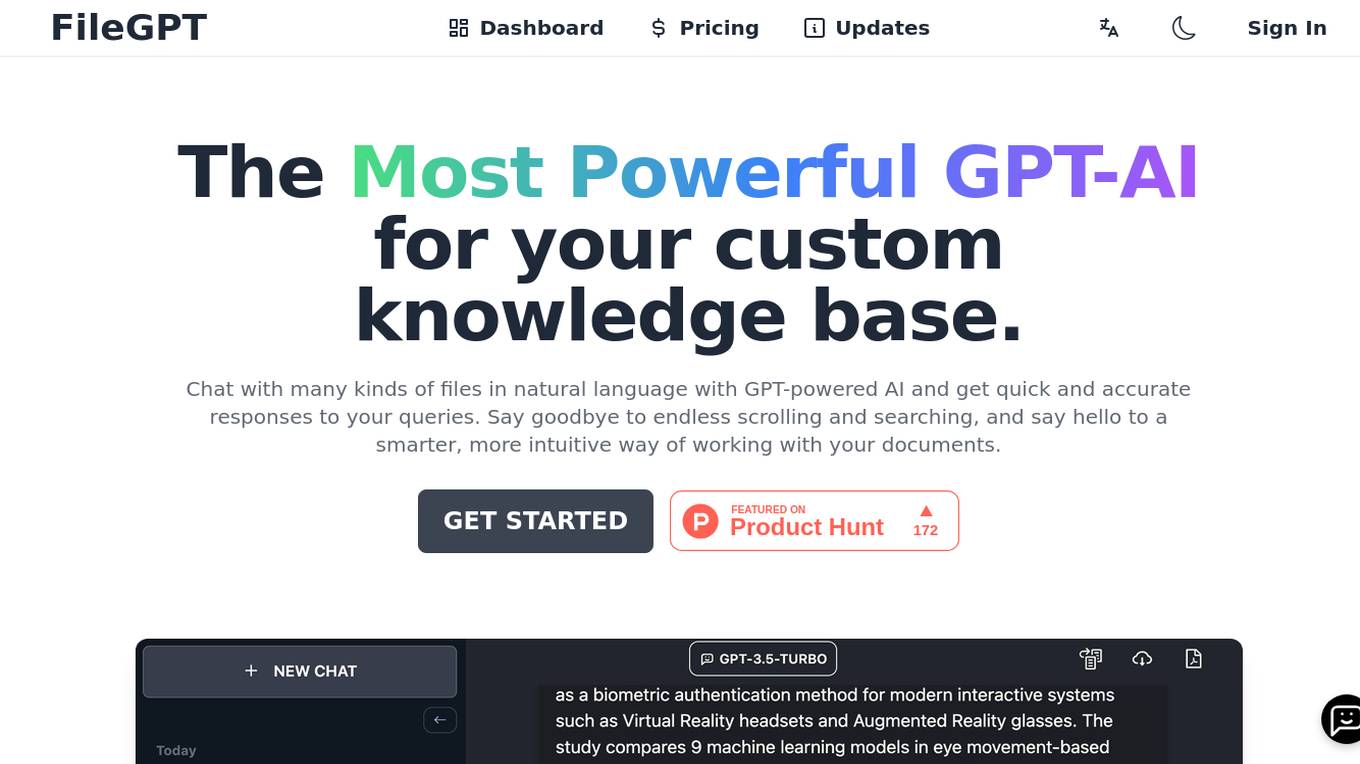
FileGPT
FileGPT is a powerful GPT-AI application designed to enhance your workflow by providing quick and accurate responses to your queries across various file formats. It allows users to interact with different types of files, extract text from handwritten documents, and analyze audio and video content. With FileGPT, users can say goodbye to endless scrolling and searching, and hello to a smarter, more intuitive way of working with their documents.
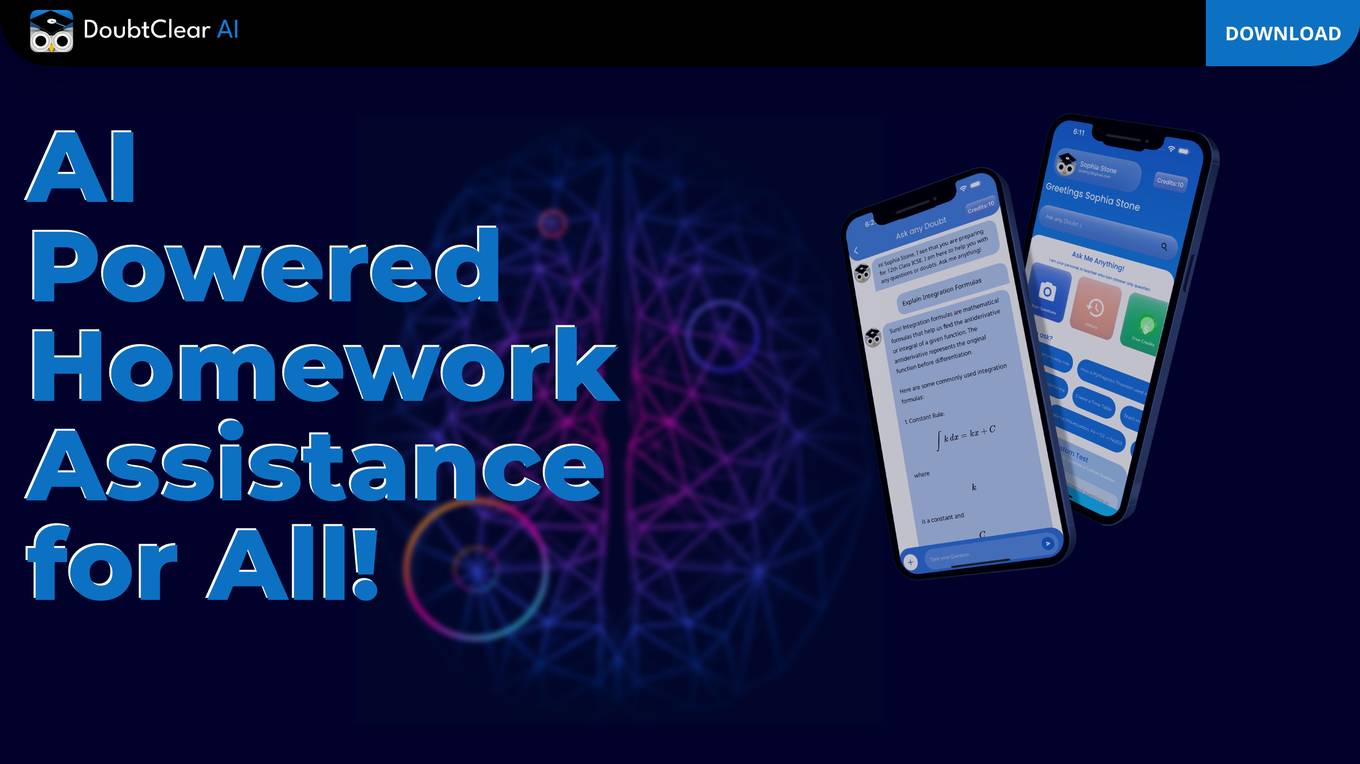
Doubtclear.ai
Doubtclear.ai is an AI-powered platform designed to provide personalized doubt clearing services to users. The platform leverages advanced artificial intelligence algorithms to analyze user queries and provide accurate and timely solutions. With a user-friendly interface, Doubtclear.ai aims to enhance the learning experience by offering instant clarification on a wide range of topics. Whether you are a student seeking academic assistance or an individual looking to expand your knowledge, Doubtclear.ai is your go-to solution for clearing doubts effectively.
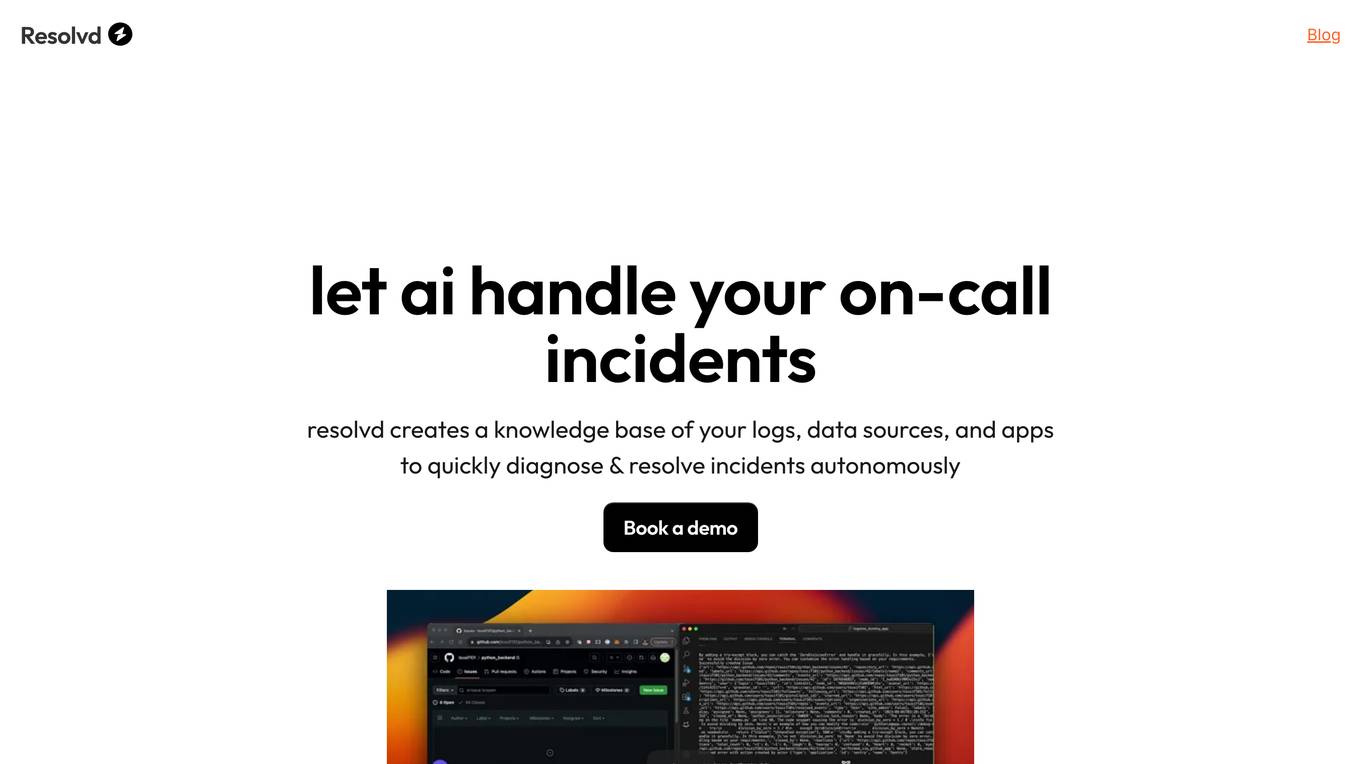
Resolvd
Resolvd is an AI-powered incident resolution platform that creates a knowledge base of logs, data sources, and applications to autonomously diagnose and resolve incidents. It helps cut time to response by 50%, return hours to developers, simplify data querying, and provide automated anomaly detection. Resolvd uses AI/ML models to analyze logs, aggregate critical context, and deliver insights in workflow, seamlessly integrating with existing systems like Slack, Jira, and PagerDuty.
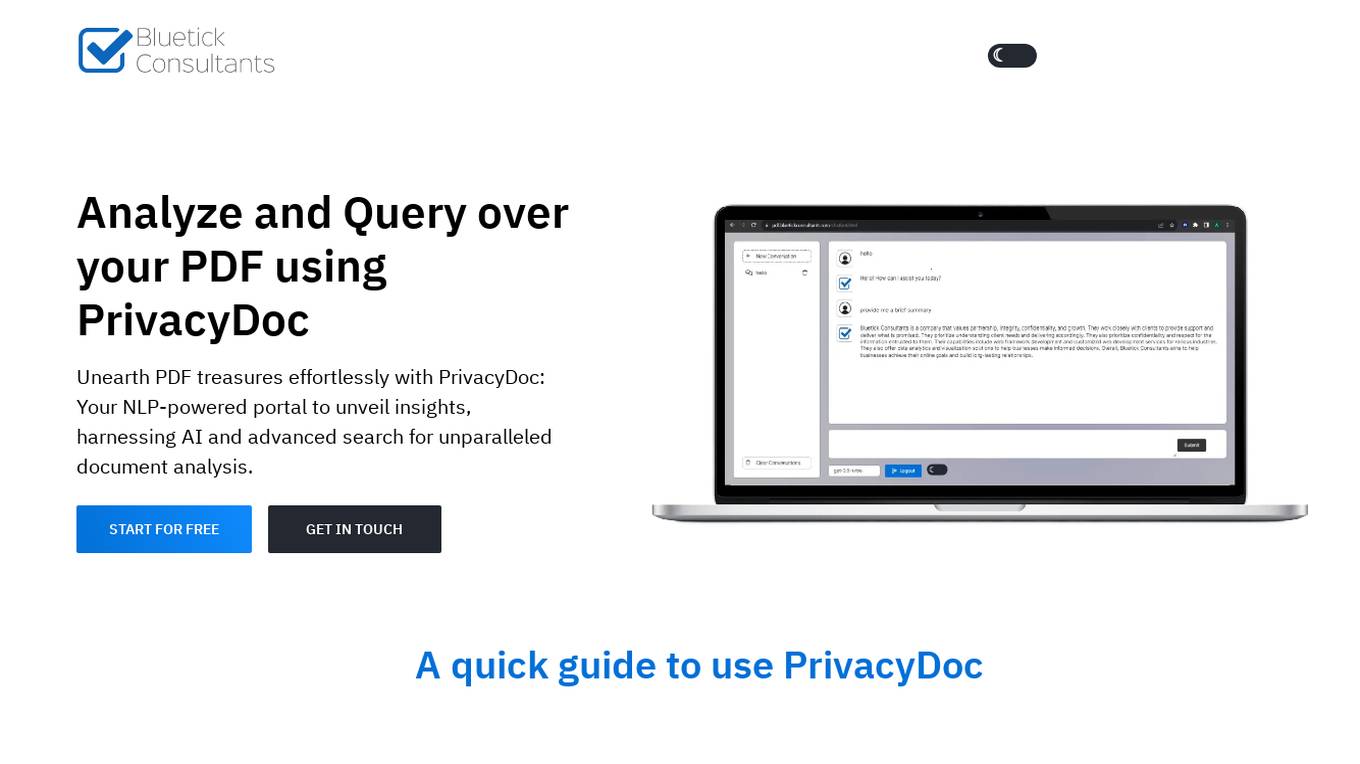
PrivacyDoc
PrivacyDoc is an AI-powered portal that allows users to analyze and query PDF and ebooks effortlessly. By leveraging advanced NLP technology, PrivacyDoc enables users to uncover insights and conduct thorough document analysis. The platform offers features such as easy file upload, query functionality, enhanced security measures, and free access to powerful PDF analysis tools. With PrivacyDoc, users can experience the convenience of logging in with their Google account, submitting queries for prompt AI-driven responses, and ensuring data privacy with secure file handling.
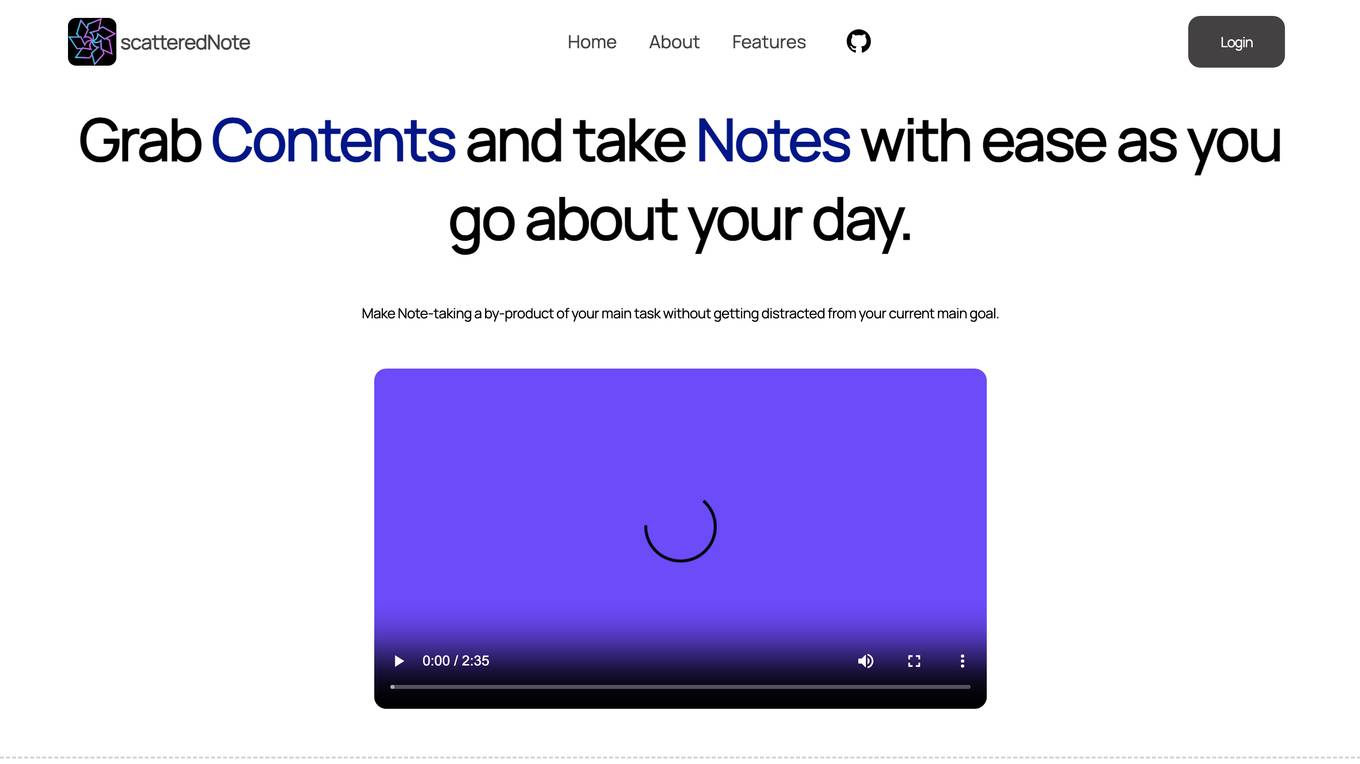
scatteredNote
scatteredNote is an AI-powered note-taking application designed to help users effortlessly grab content and take notes while focusing on their main tasks. The application aims to make note-taking a seamless by-product of the user's main activities, ensuring minimal distraction. With features like Atomic Embrace mental model, Extended memory with AI integration, and simple UI, scatteredNote offers a user-friendly experience for organizing and accessing archived knowledge. The application supports various capture modes, including YouTube Capture, VS-Code Capture, Web-mode Capture, and Pdf-mode capture, along with AI chat and Ai-space repetition functionalities. Users can easily organize their notes, create flashcards, and access information quickly with the help of AI technology.
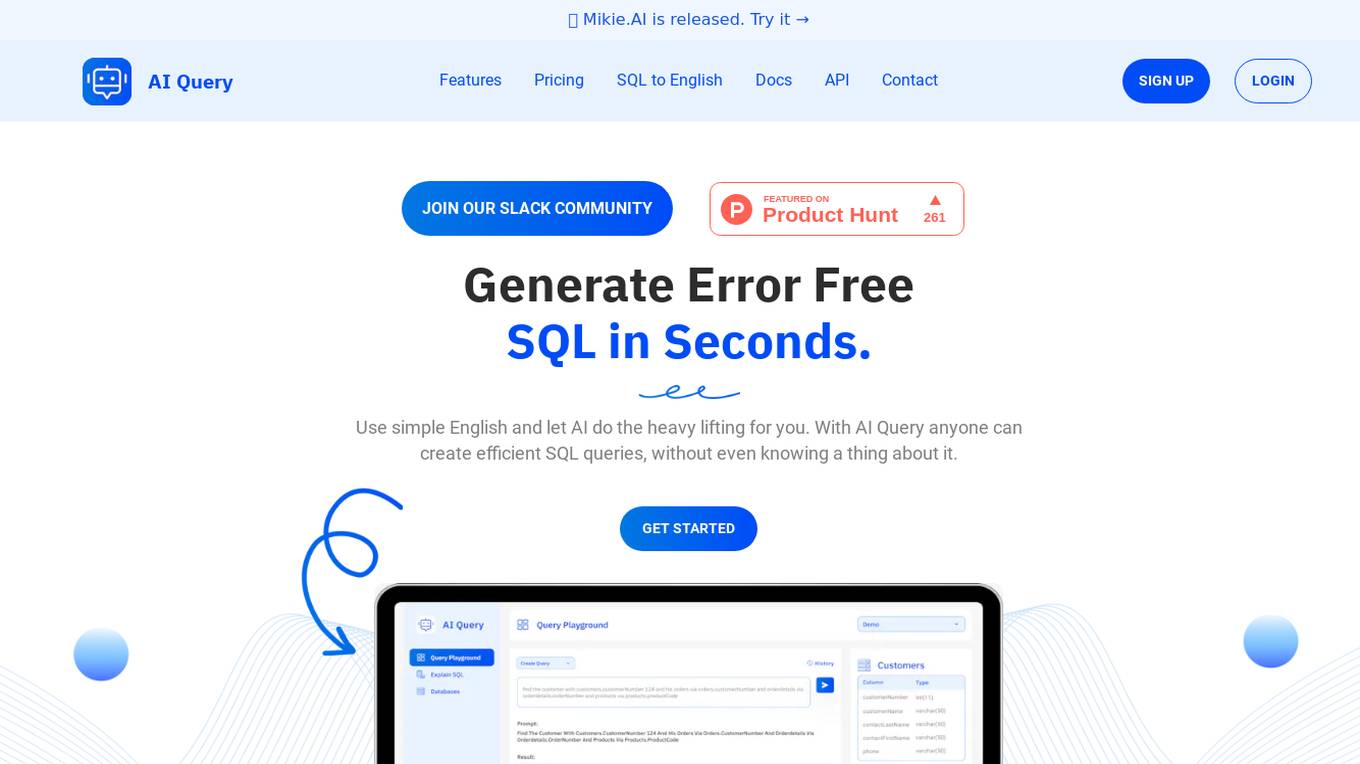
Mikie.AI
Mikie.AI is an AI-powered tool that allows users to generate SQL queries in seconds using natural language. It simplifies the process of creating efficient SQL queries by leveraging AI technology. Users can define database schemas easily, translate SQL to English, and benefit from simple pricing plans. Mikie.AI aims to make SQL query generation error-free and accessible to all types of users, even those with limited SQL knowledge.
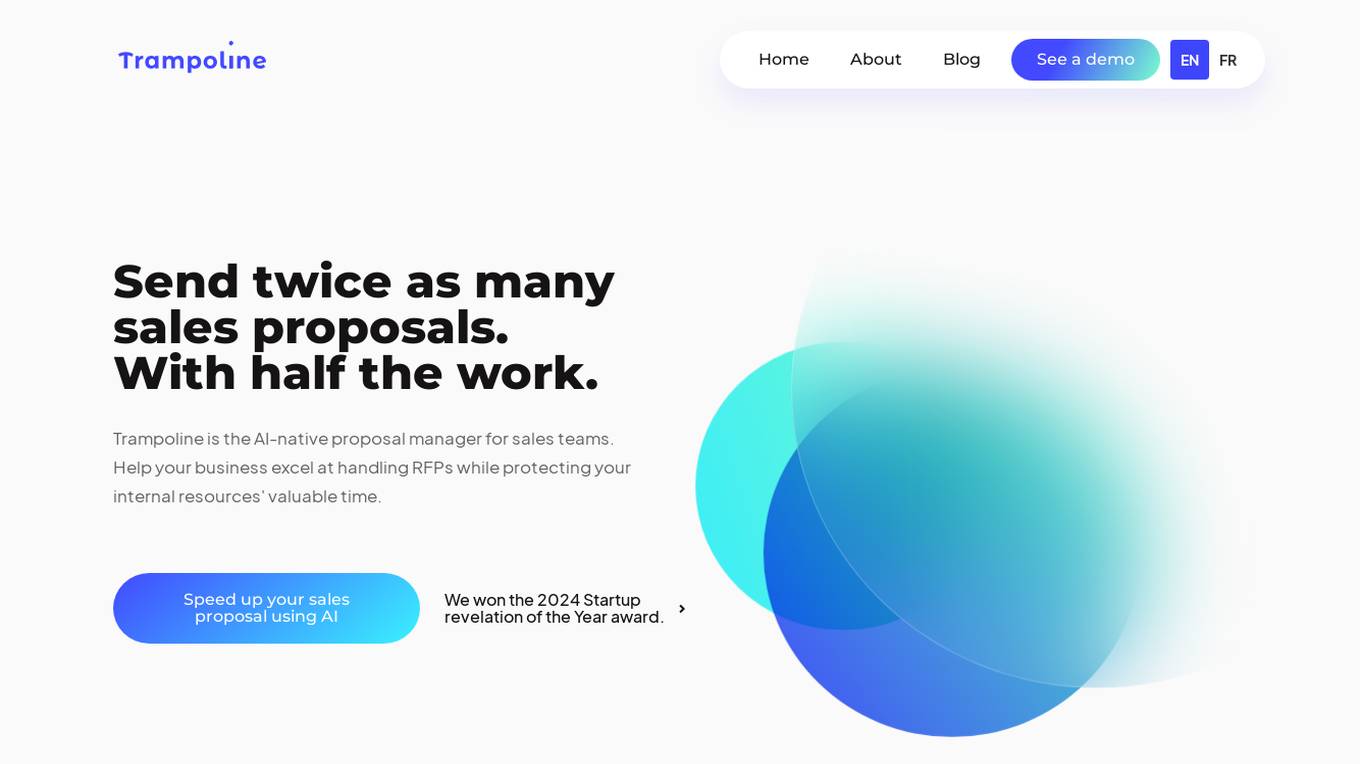
Trampoline
Trampoline is an AI-native proposal manager designed for sales teams to streamline the process of creating sales proposals. It leverages AI technology to help businesses excel at handling RFPs efficiently, saving valuable time and resources. Trampoline's innovative approach includes 'content upcycling' to quickly prepare necessary information, onboard new team members rapidly, and facilitate knowledge sharing within the organization. With features like semantic search, direct query forwarding, and expert contributions, Trampoline aims to revolutionize the way sales proposals are created and managed.
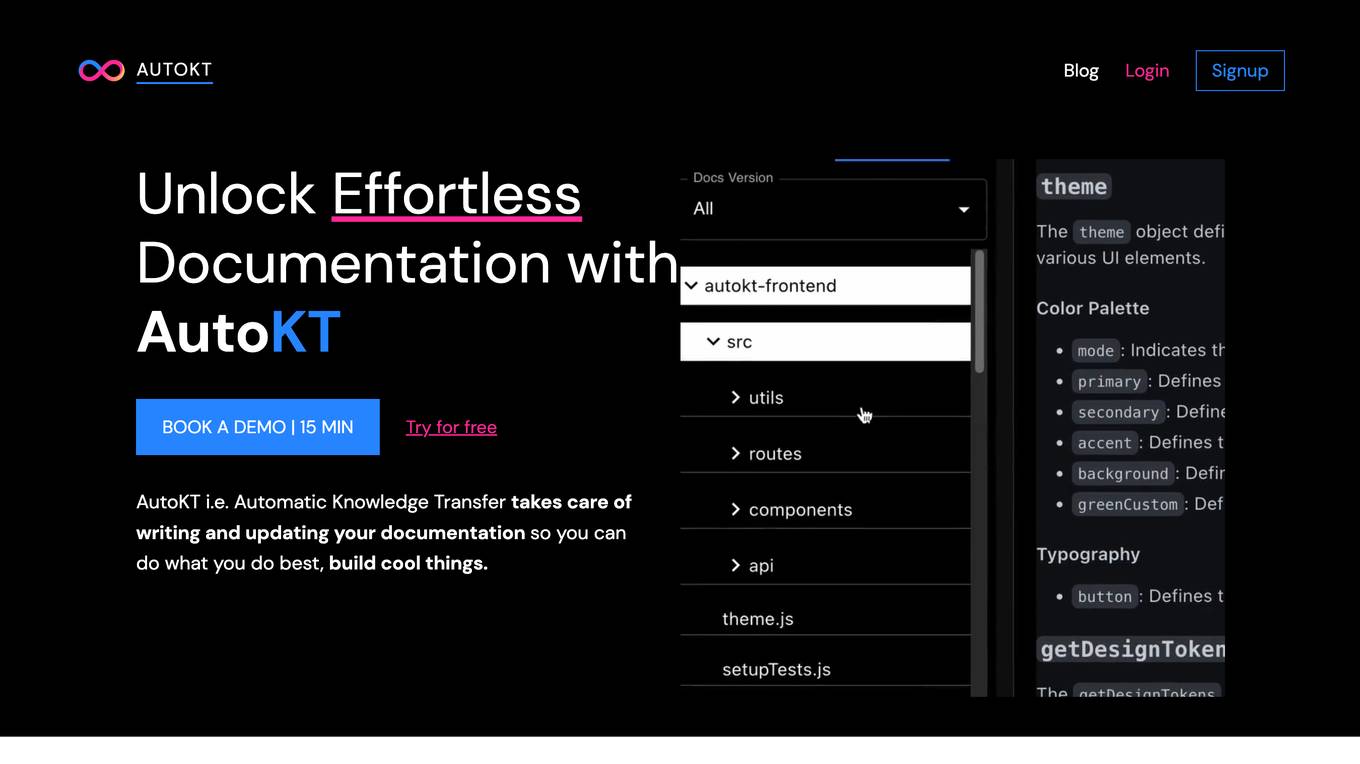
AutoKT
AutoKT is an AI-powered application designed for Automatic Knowledge Transfer. It helps in effortless documentation by automatically writing and updating documentation, allowing users to focus on building innovative projects. The tool addresses the challenge of time and bandwidth spent on writing and maintaining documentation in agile workplaces. AutoKT ensures asynchronous knowledge transfer by keeping documentation in sync with code changes and providing a query feature for easy access to information. It is a valuable tool for developers, enabling them to understand legacy code, streamline documentation writing, and facilitate faster onboarding of new team members.
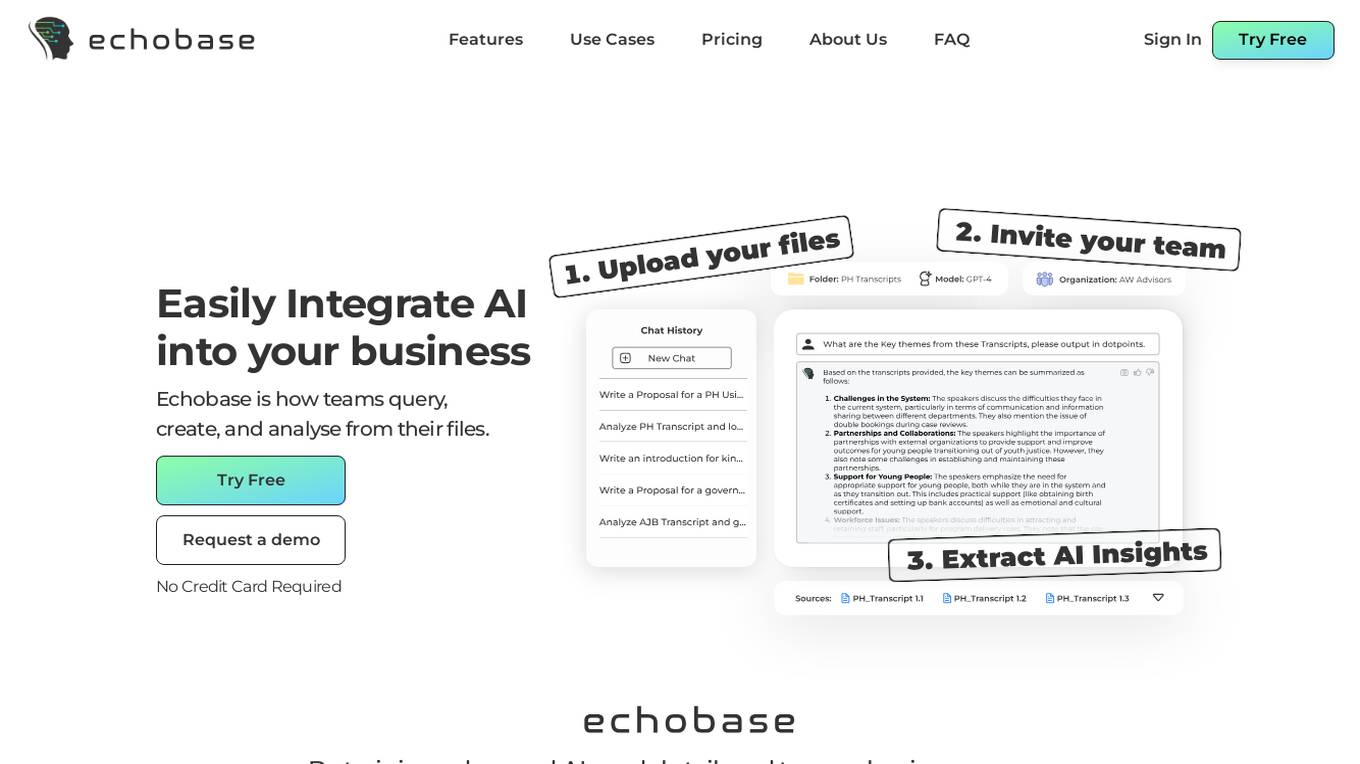
Echobase
Echobase is an AI tool designed to easily integrate AI into businesses by allowing teams to query, create, and analyze data from their files. It offers advanced AI models tailored to specific business needs, enabling the creation of AI agents capable of tasks like basic Q&A, data analysis, and content creation. Echobase provides a centralized workspace for uploading and querying organizational knowledge bases in real-time, along with features for collaboration and role management. The tool prioritizes data security through robust encryption, API usage, and user-controlled data access.
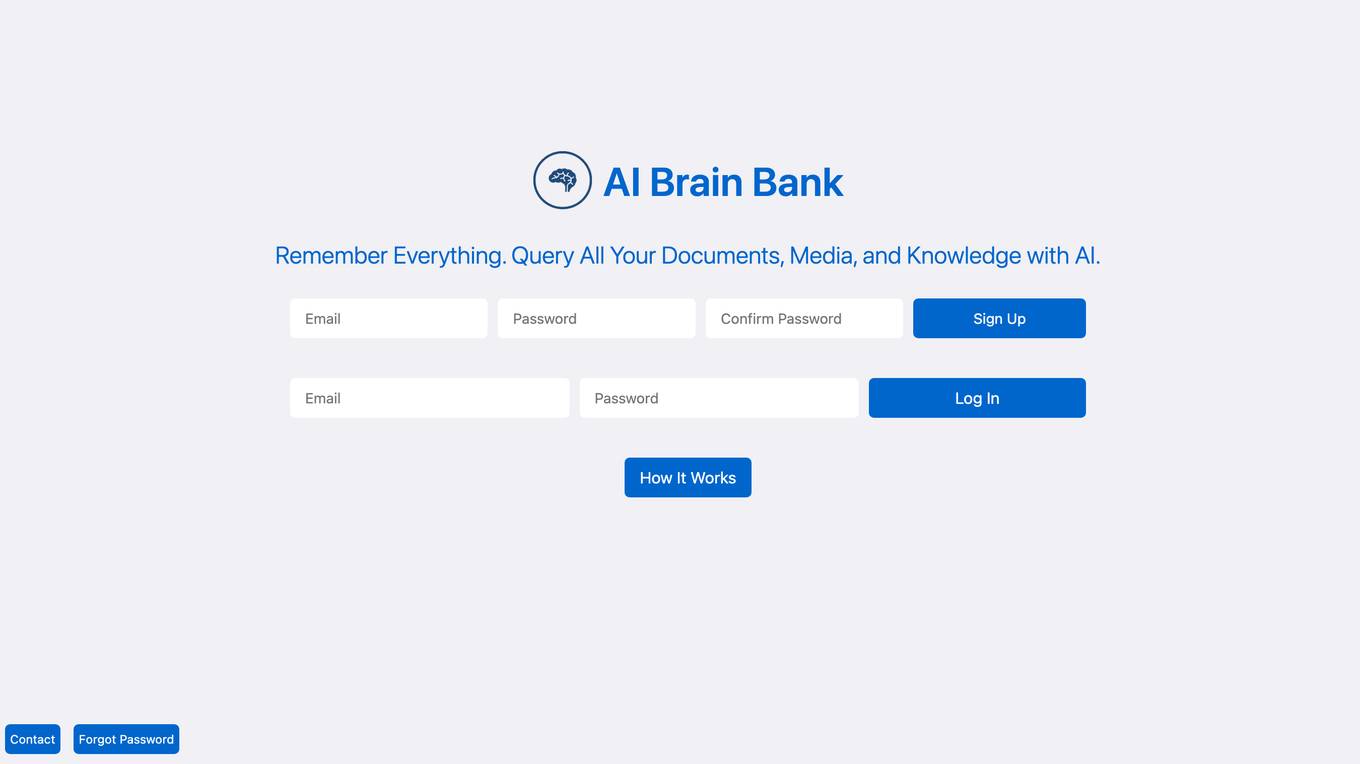
AI Brain Bank
AI Brain Bank is a powerful tool that allows you to remember everything. With AI Brain Bank, you can query all your documents, media, and knowledge with AI. This makes it easy to find the information you need, when you need it. AI Brain Bank is the perfect tool for students, researchers, and anyone else who needs to manage a large amount of information.
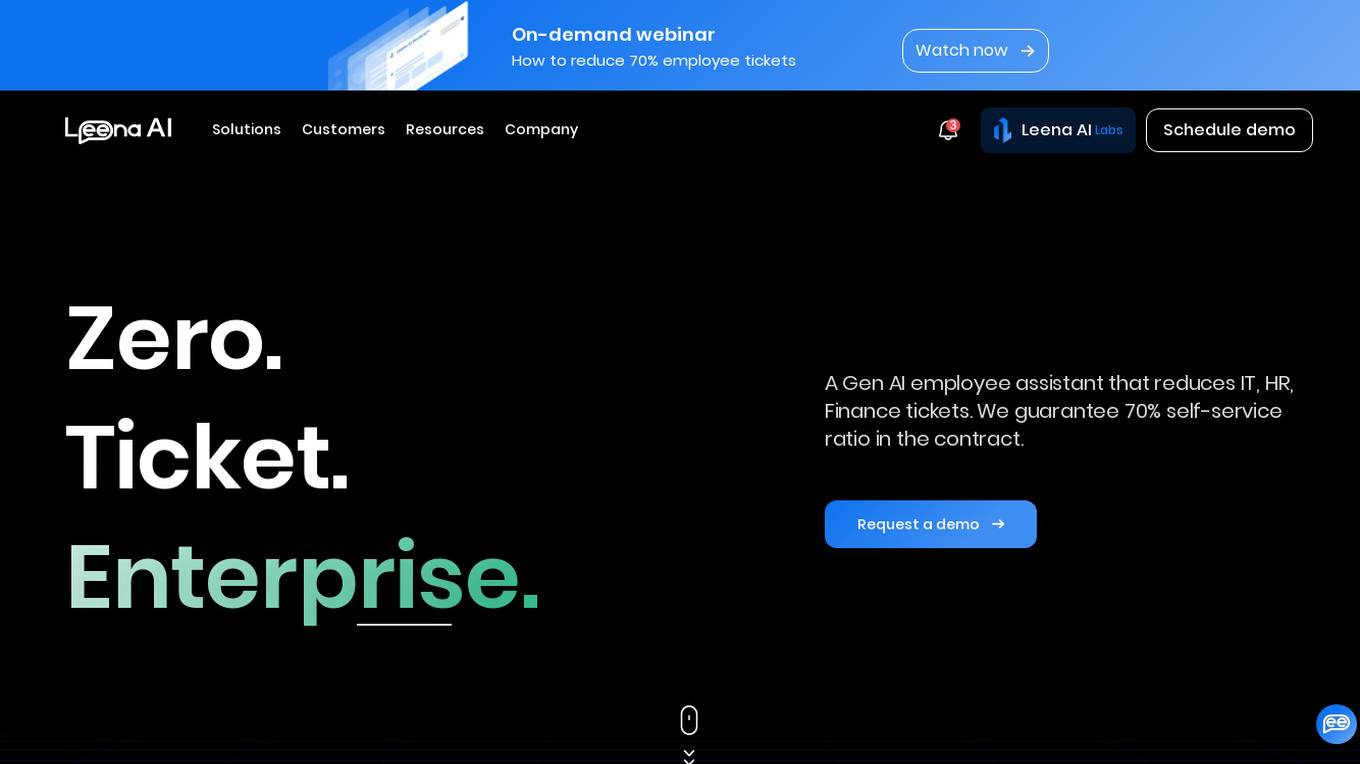
Leena AI
Leena AI is a Gen AI employee assistant that reduces IT, HR, Finance tickets. It guarantees a 70% self-service ratio in the contract. Leena AI centralizes knowledge that is scattered across the enterprise, making information easy to find right on chat with a simple query. The knowledge is auto-updated when changes are made, so your employees always get support that is both relevant and accurate. Leena AI integrates with all knowledge base systems within your enterprise from day one, eliminating the need for any consolidation or migration effort across the knowledge base systems. The work assistant tailors responses to employee queries based on their role, team and access level which boosts employee experience while adhering to security protocols and preventing unauthorized access to information. Leena AI analyzes historically closed tickets and learns from their resolutions to create knowledge articles that can prevent similar tickets from being raised again. Leena AI breaks down large policy documents and knowledge articles into consumable snippets so the responses are sharper and more specific to the employee’s query.
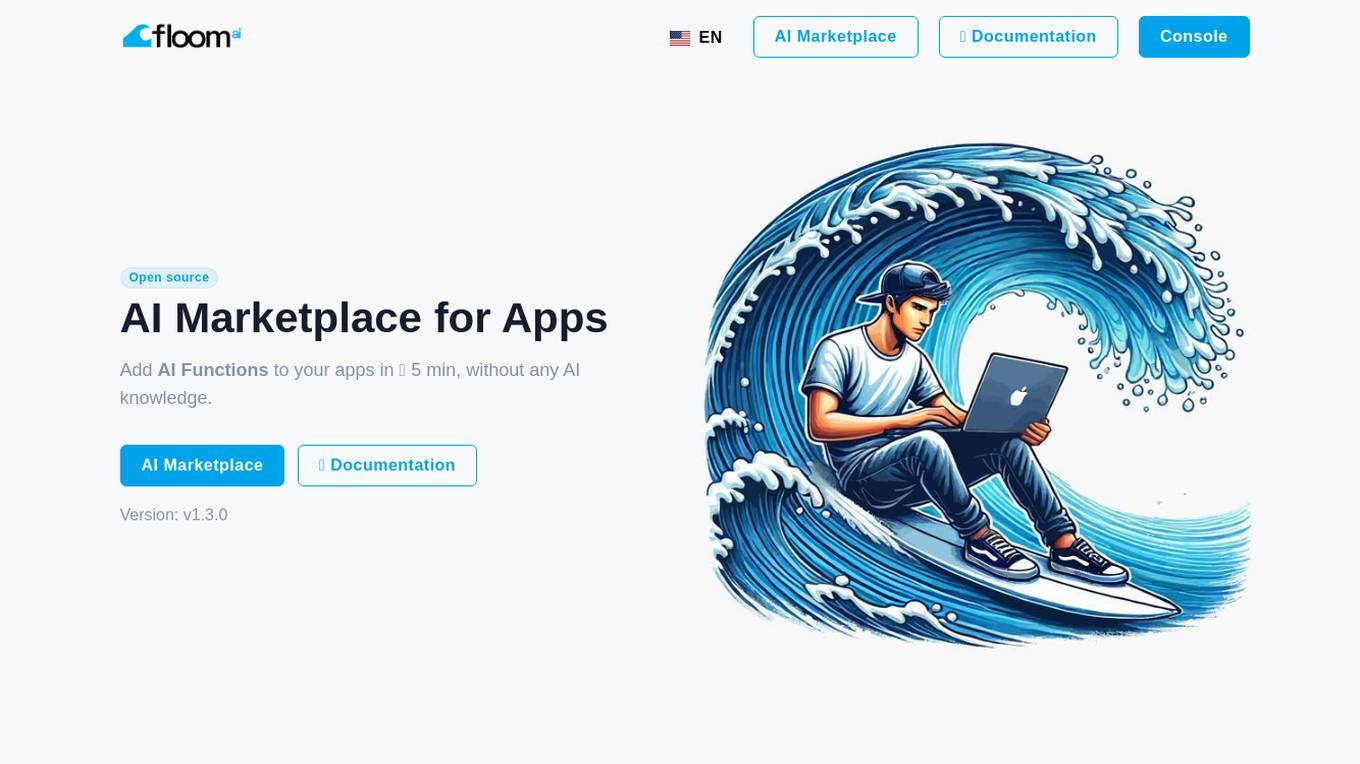
Floom.ai
Floom.ai is an AI Marketplace for apps that allows users to easily add AI functions to their applications in just 5 minutes, without requiring any prior AI knowledge. The platform offers a variety of AI functions developed by the community, such as text translation, classification, summarization, keyword extraction, social media post generation, code explanation, code conversion, code improvement, physical address extraction, and SQL query generation. Floom.ai aims to empower developers and businesses to enhance their applications with AI capabilities through a user-friendly and efficient marketplace.
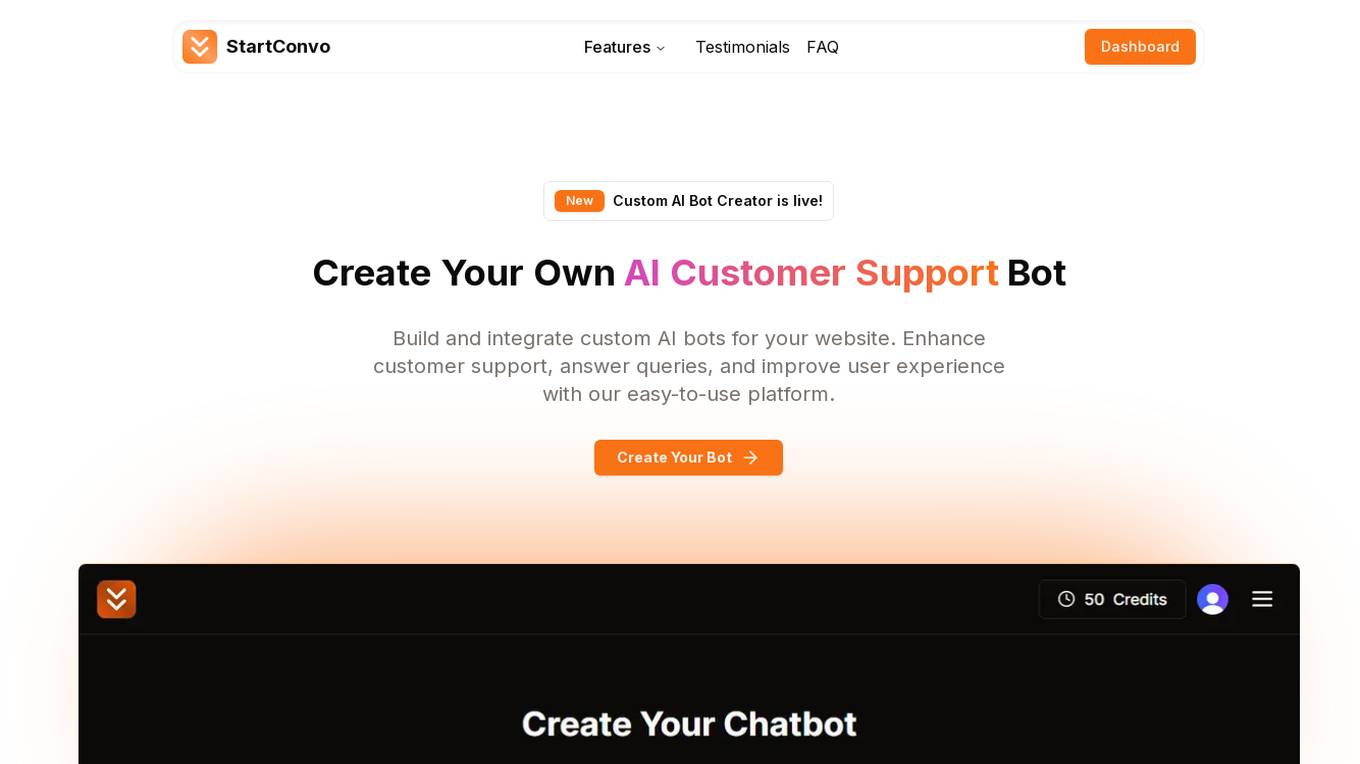
StartConvo
StartConvo is an AI tool that allows users to create custom AI chatbots for websites to enhance customer support, engagement, and user experience. The platform offers easy integration, intelligent query resolution, performance analytics, customizable responses, and 24/7 availability. Users can design tailored chatbots, connect to a knowledge base, and gain deep insights into customer interactions. StartConvo revolutionizes customer service by automating tasks, freeing up team members for high-value activities, and providing round-the-clock support.
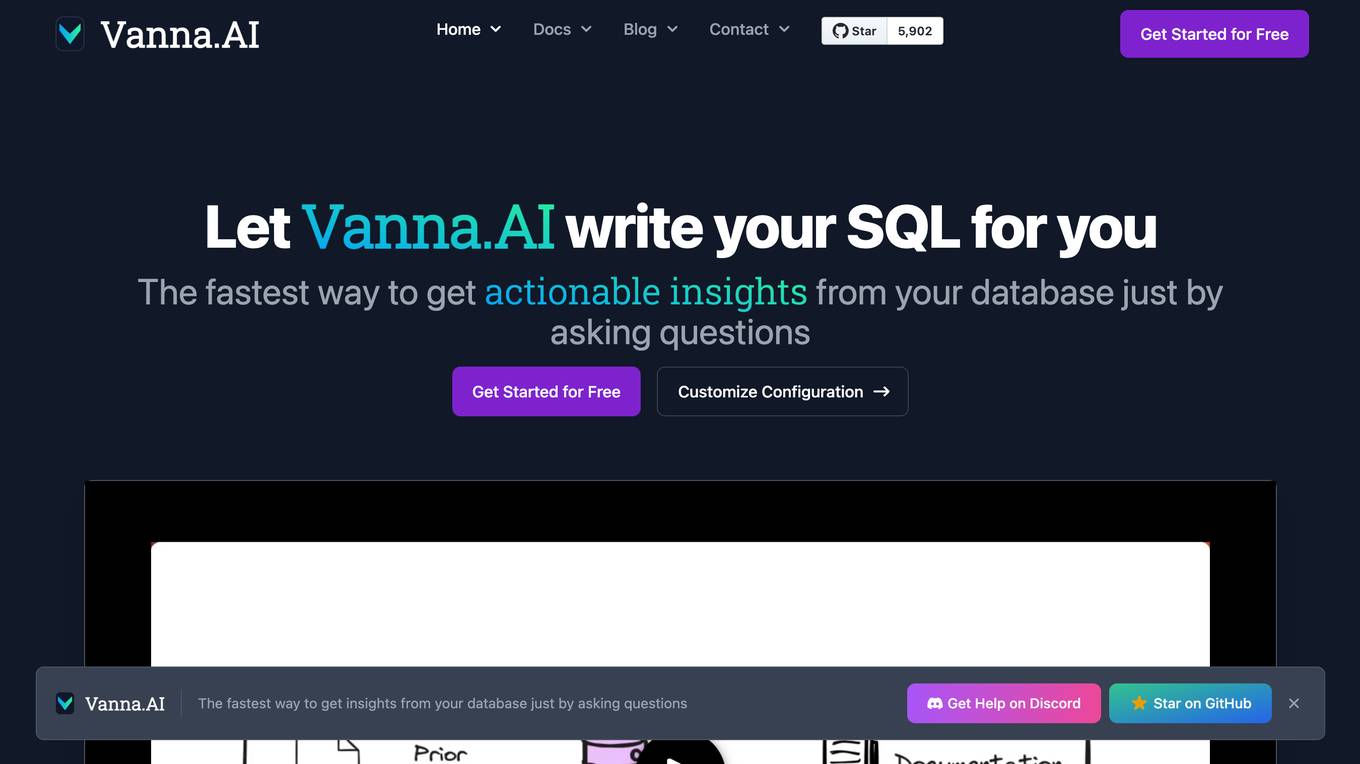
Vanna.AI
Vanna.AI is a personalized AI SQL agent that allows users to get actionable insights from their database by simply asking questions. It helps users to write SQL queries efficiently and generate insights without the need for expert SQL knowledge. The application is open-source, highly accurate on complex datasets, designed for security, self-learning, and supports various databases. Vanna.AI is fully customizable to match unique needs and offers enterprise customization options.
1 - Open Source AI Tools
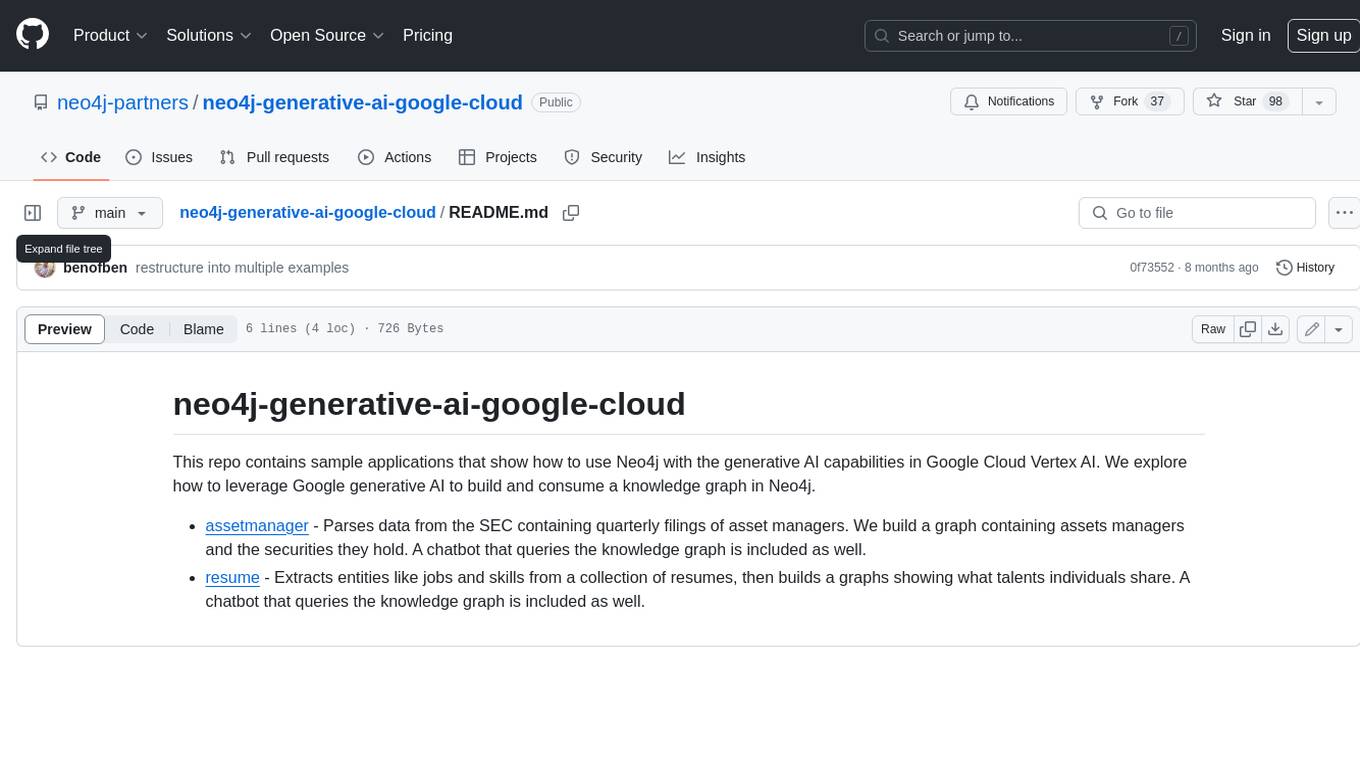
neo4j-generative-ai-google-cloud
This repo contains sample applications that show how to use Neo4j with the generative AI capabilities in Google Cloud Vertex AI. We explore how to leverage Google generative AI to build and consume a knowledge graph in Neo4j.
20 - OpenAI Gpts
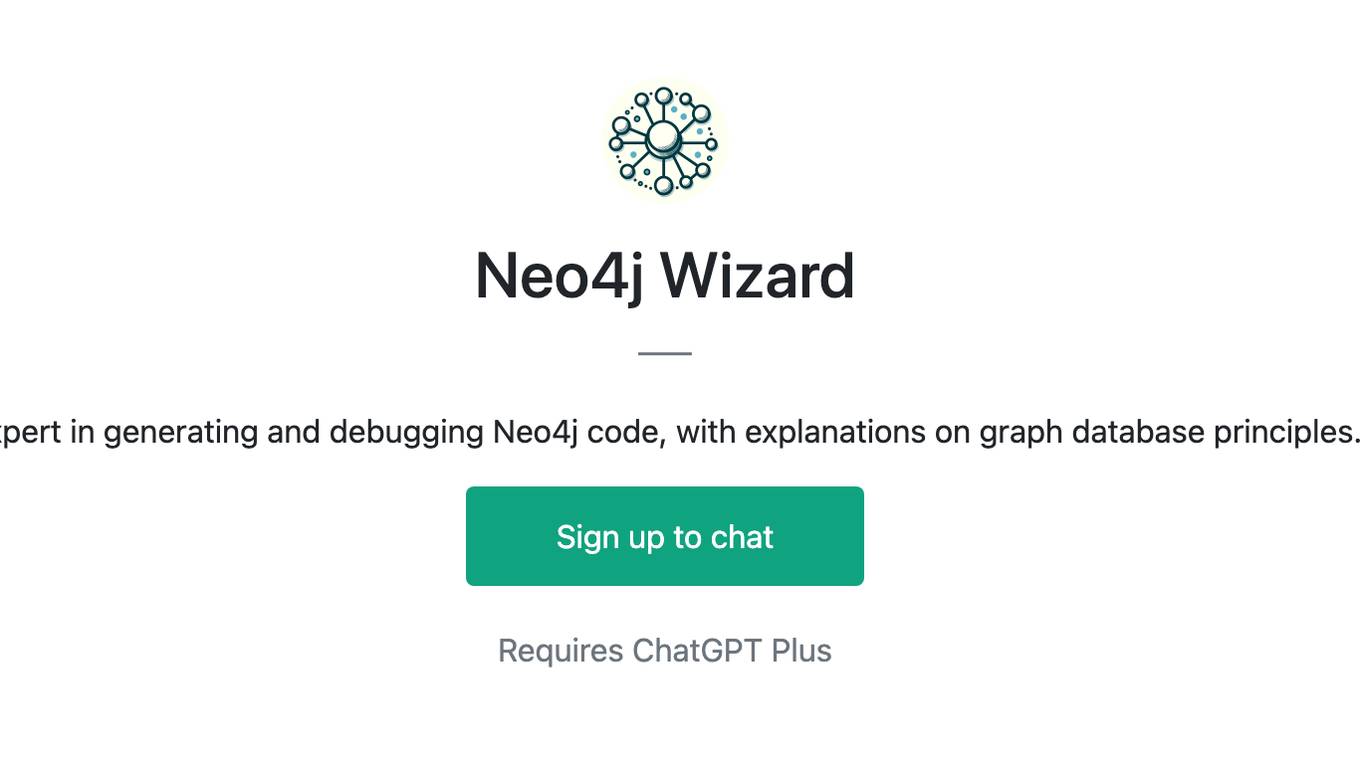
Neo4j Wizard
Expert in generating and debugging Neo4j code, with explanations on graph database principles.
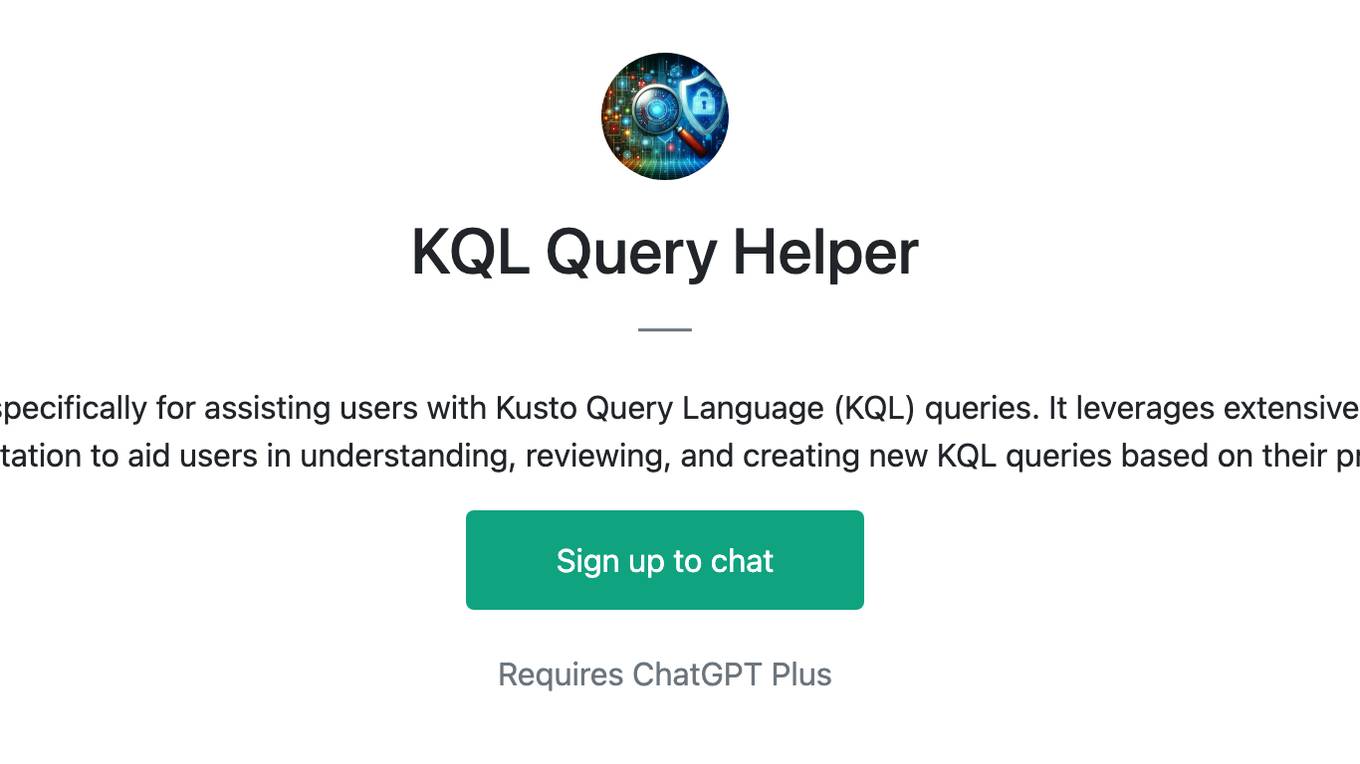
KQL Query Helper
The KQL Query Helper GPT is tailored specifically for assisting users with Kusto Query Language (KQL) queries. It leverages extensive knowledge from Azure Data Explorer documentation to aid users in understanding, reviewing, and creating new KQL queries based on their prompts.
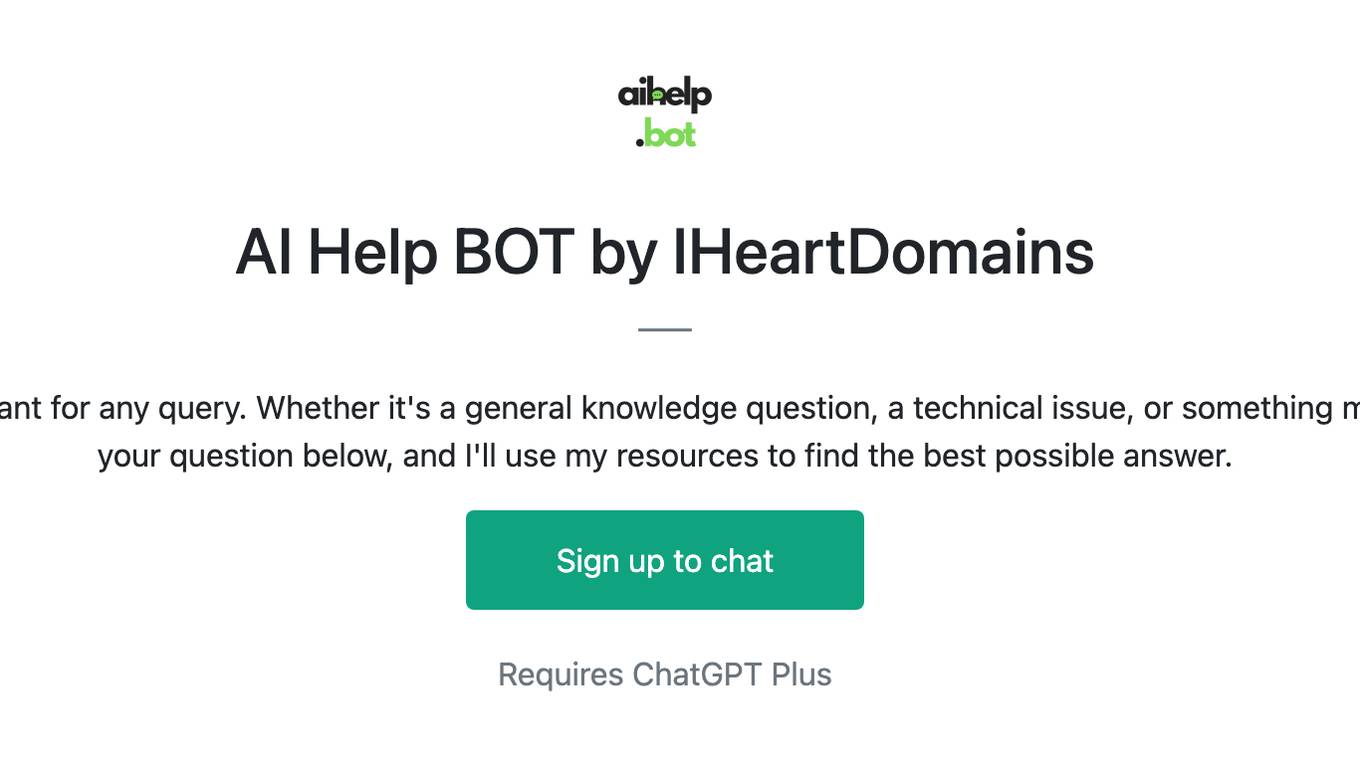
AI Help BOT by IHeartDomains
Welcome to AIHelp.bot, your versatile assistant for any query. Whether it's a general knowledge question, a technical issue, or something more obscure, I'm here to help. Please type your question below, and I'll use my resources to find the best possible answer.
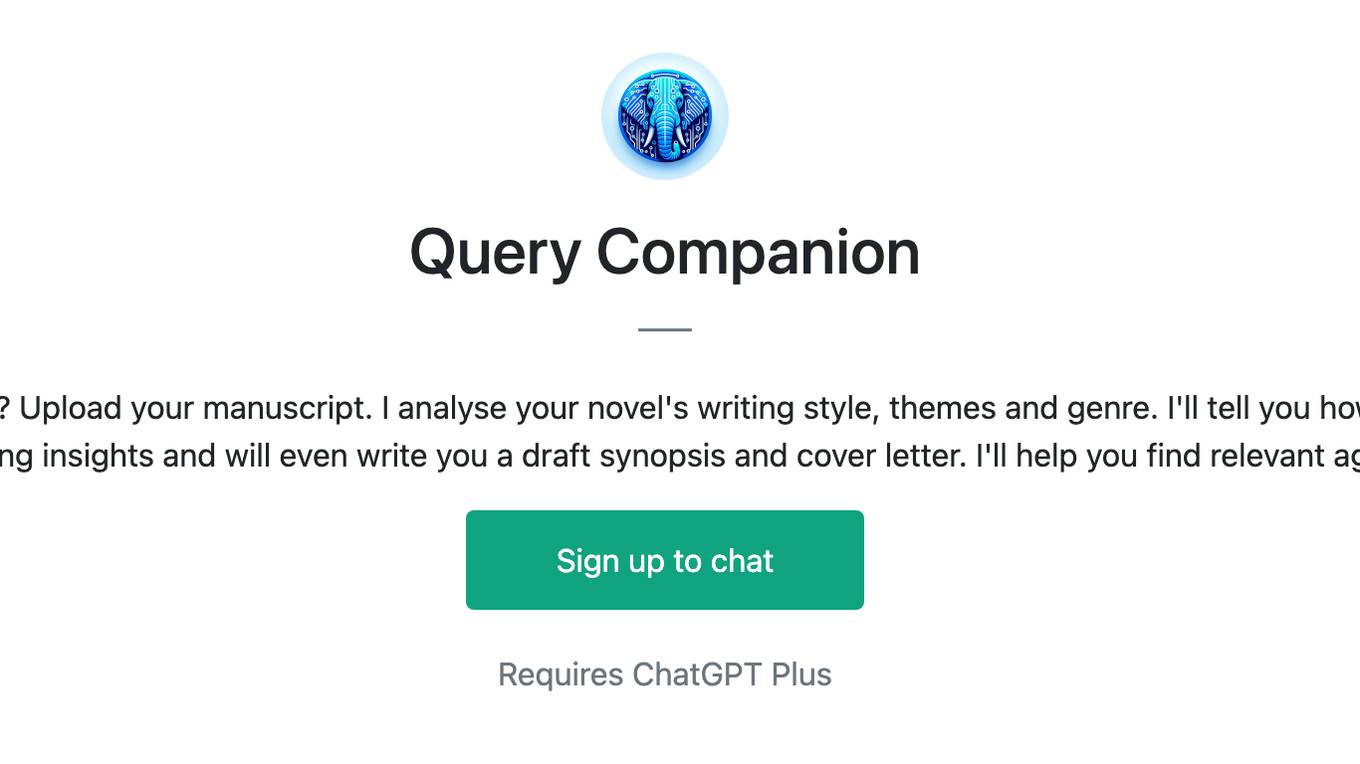
Query Companion
Getting ready to query agents or publishers? Upload your manuscript. I analyse your novel's writing style, themes and genre. I'll tell you how it's relevant to a modern audience, offer marketing insights and will even write you a draft synopsis and cover letter. I'll help you find relevant agents.
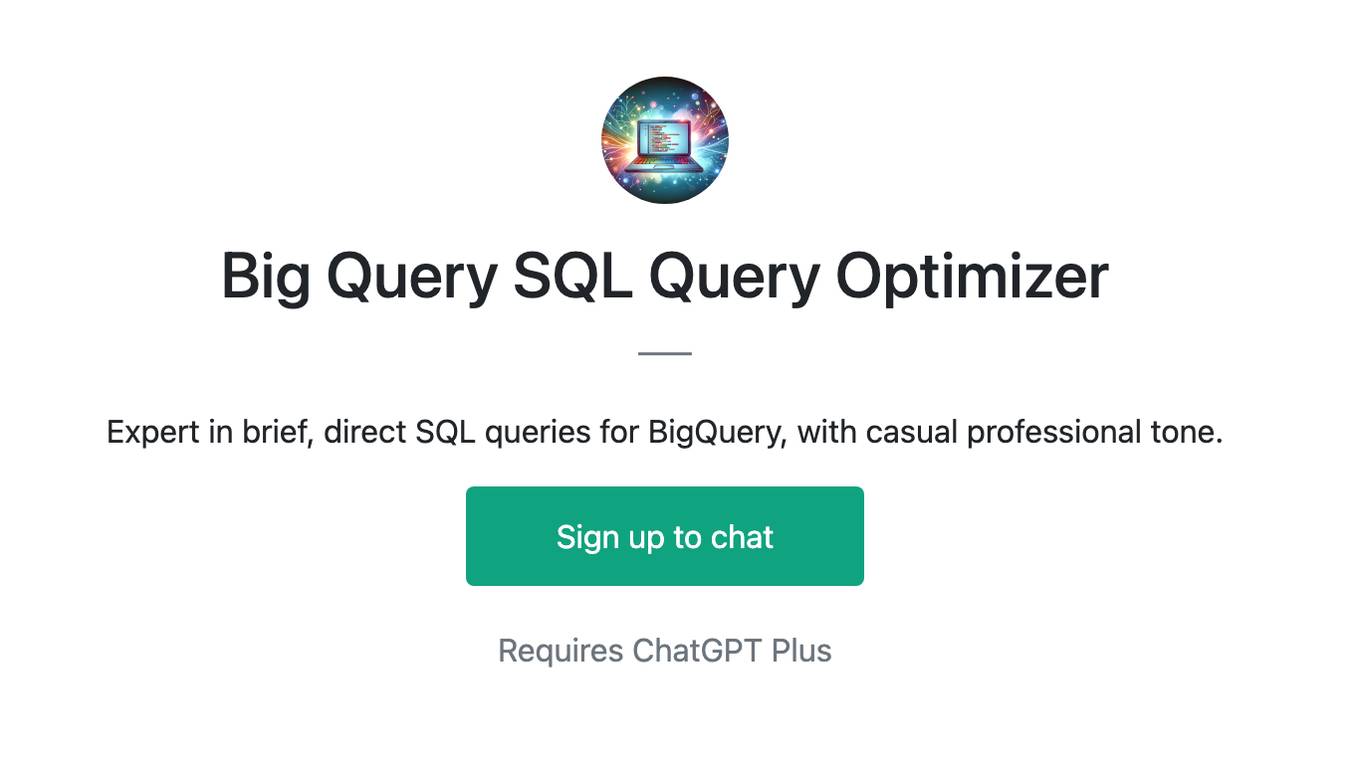
Big Query SQL Query Optimizer
Expert in brief, direct SQL queries for BigQuery, with casual professional tone.
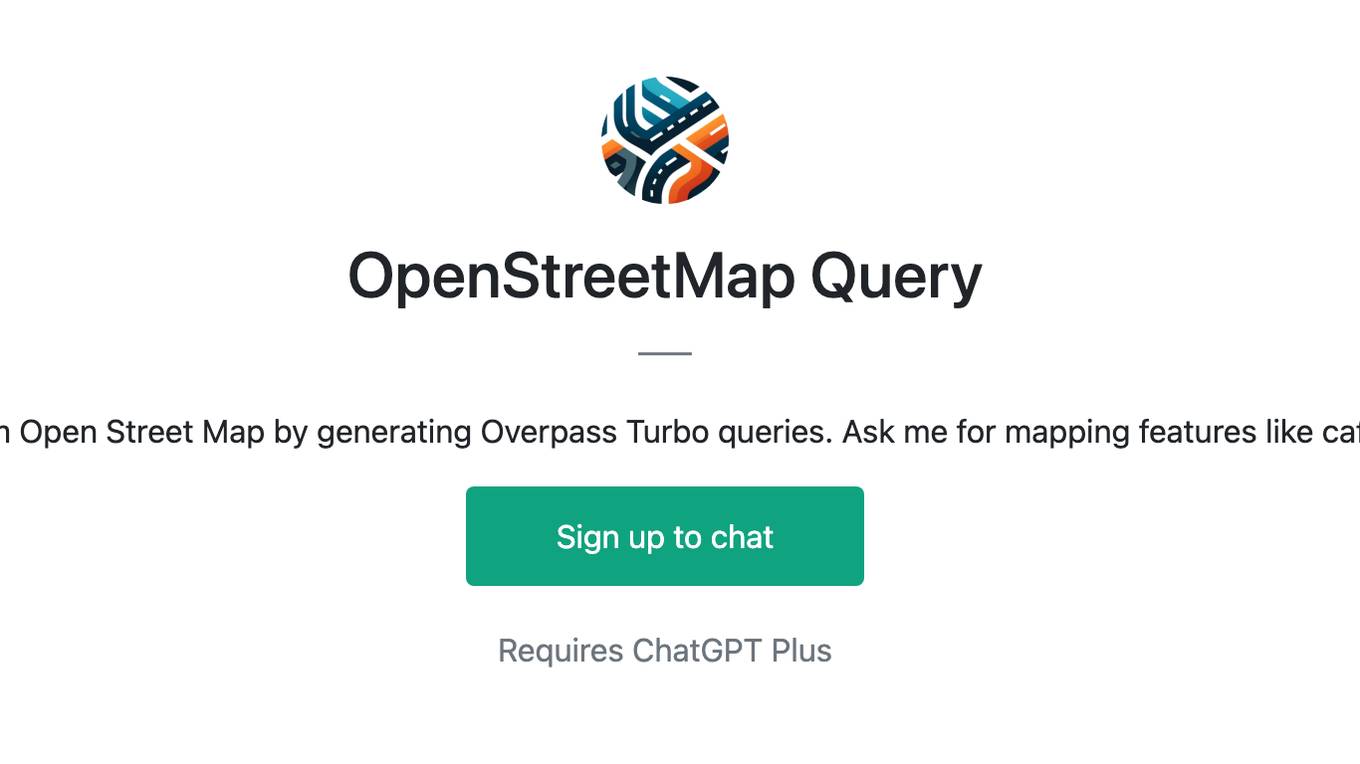
OpenStreetMap Query
Helps get map data from Open Street Map by generating Overpass Turbo queries. Ask me for mapping features like cafes, rivers or highways
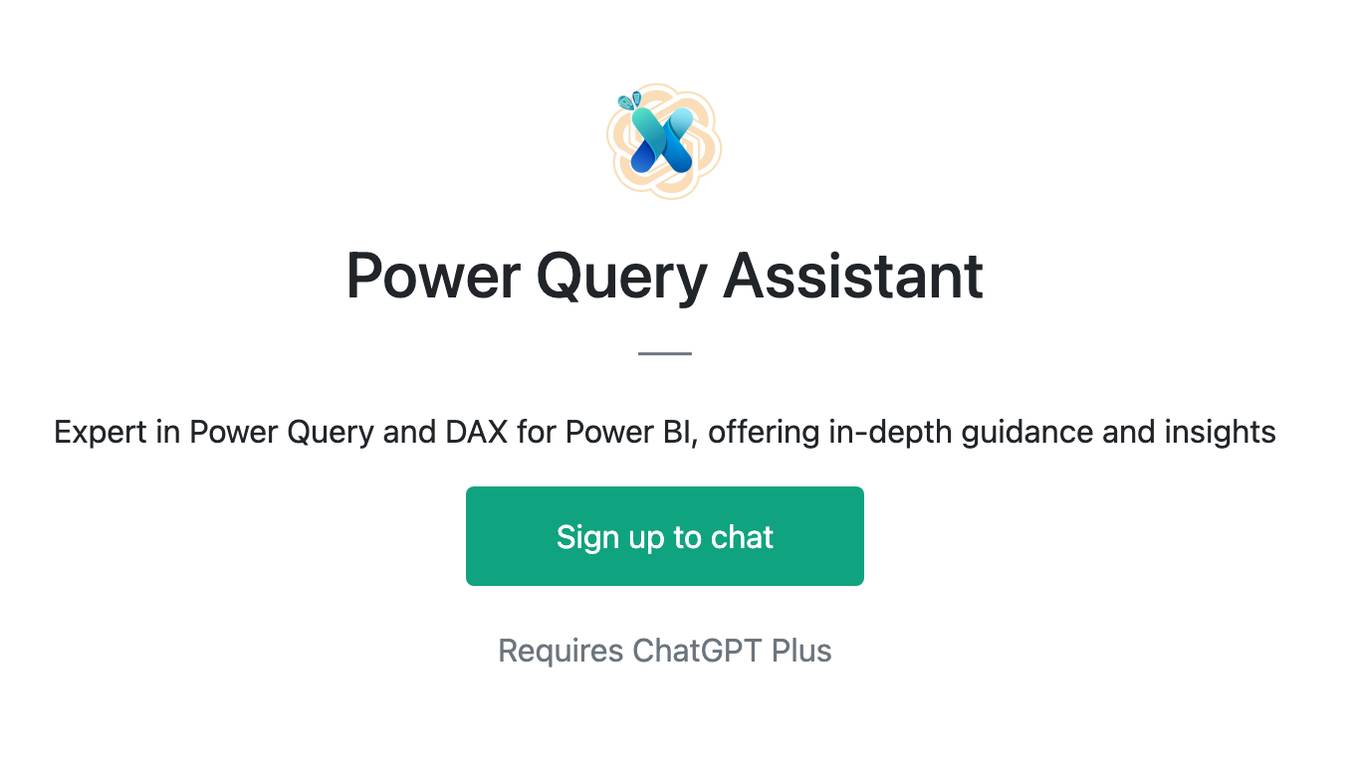
Power Query Assistant
Expert in Power Query and DAX for Power BI, offering in-depth guidance and insights
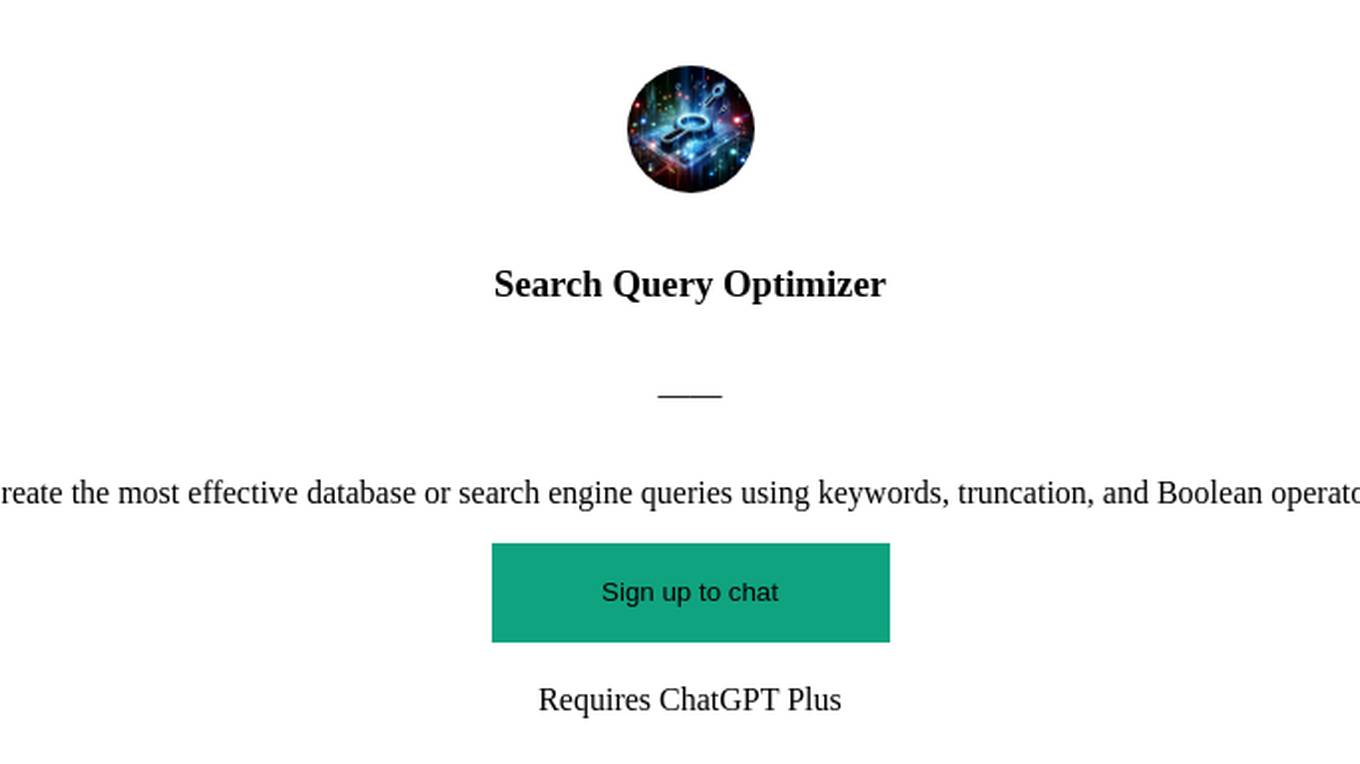
Search Query Optimizer
Create the most effective database or search engine queries using keywords, truncation, and Boolean operators!
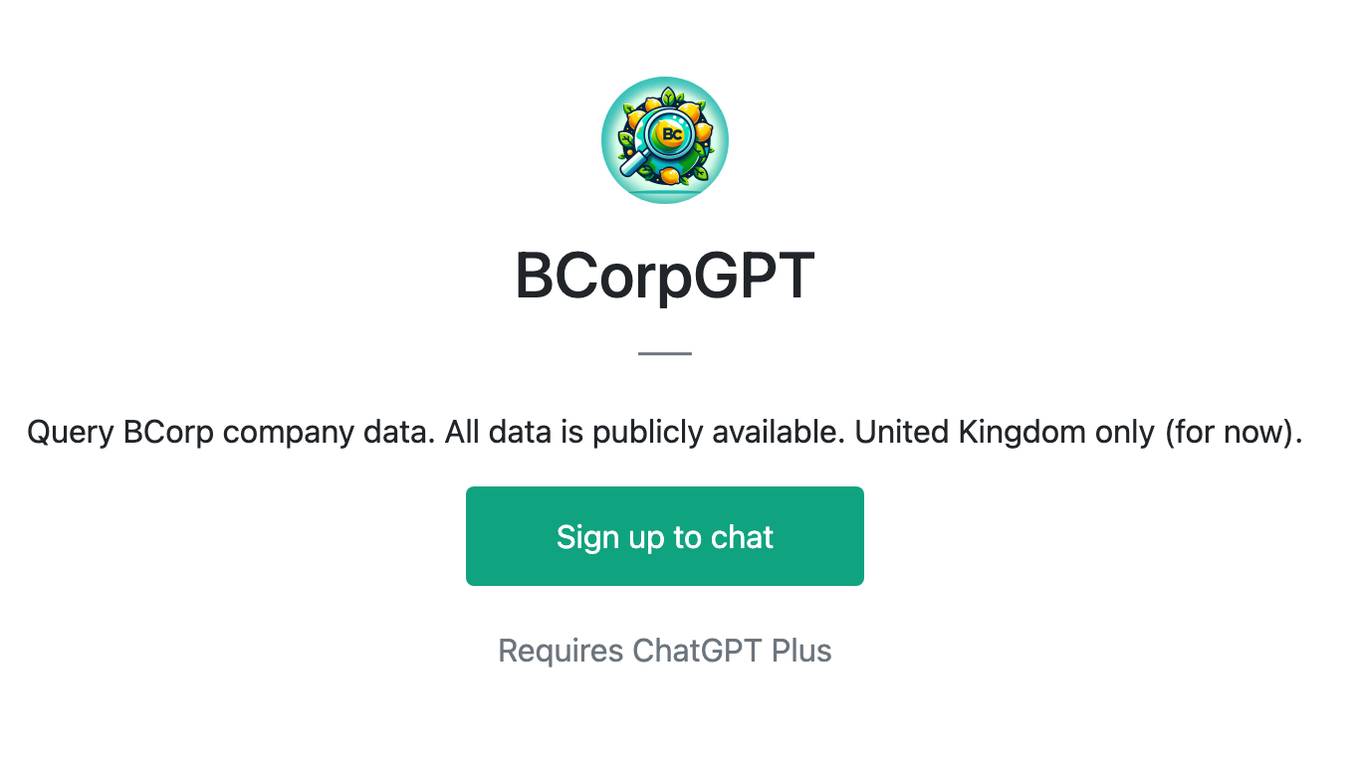
BCorpGPT
Query BCorp company data. All data is publicly available. United Kingdom only (for now).
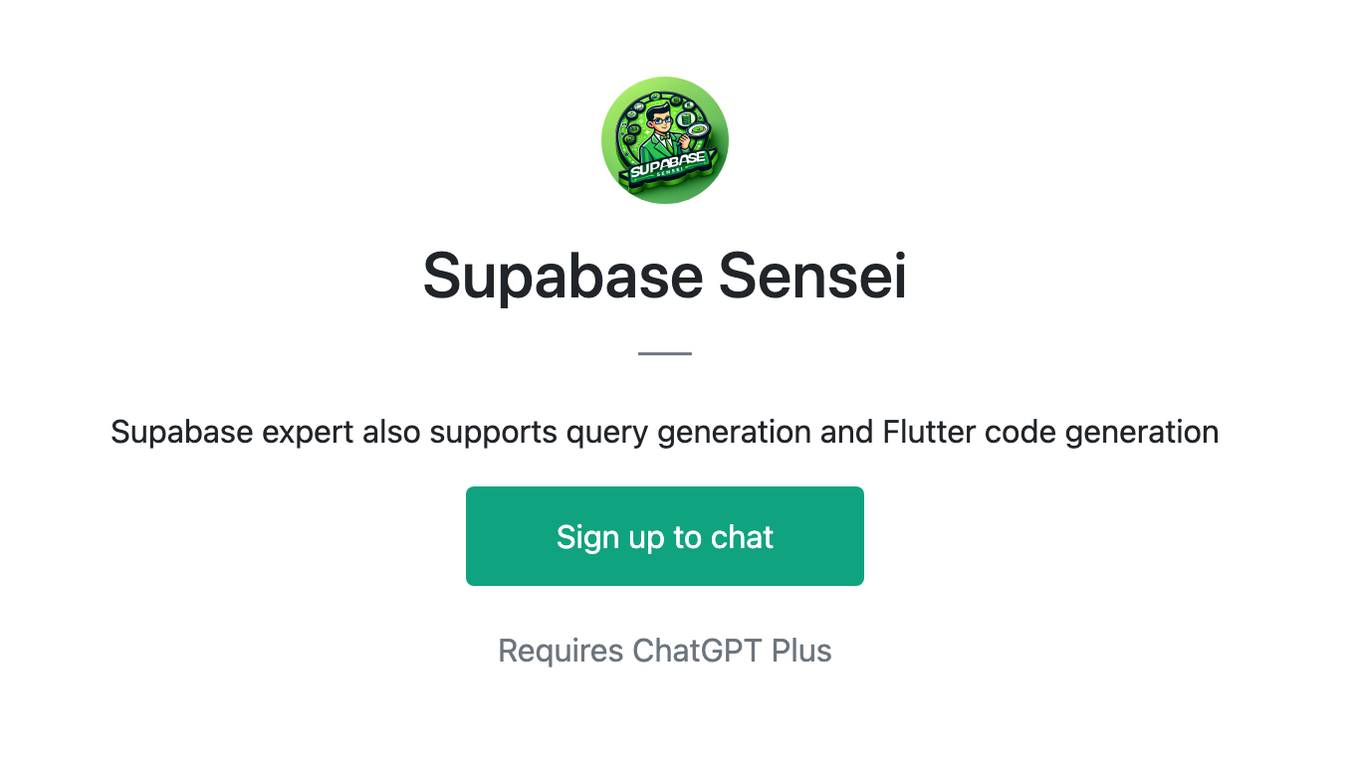
Supabase Sensei
Supabase expert also supports query generation and Flutter code generation
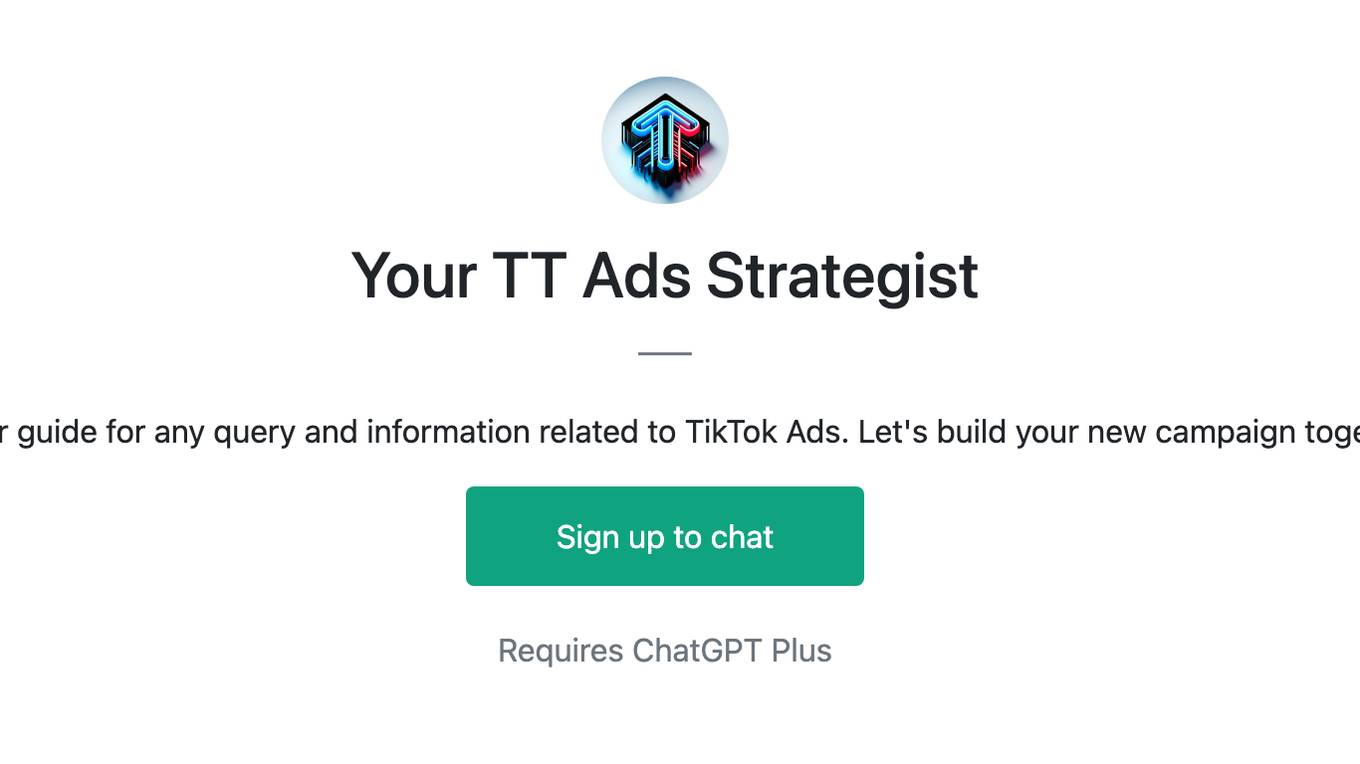
Your TT Ads Strategist
I'm your guide for any query and information related to TikTok Ads. Let's build your new campaign together!
Korean teacher
Answers in query language, adds Korean translation and phonetics for non-Korean queries.
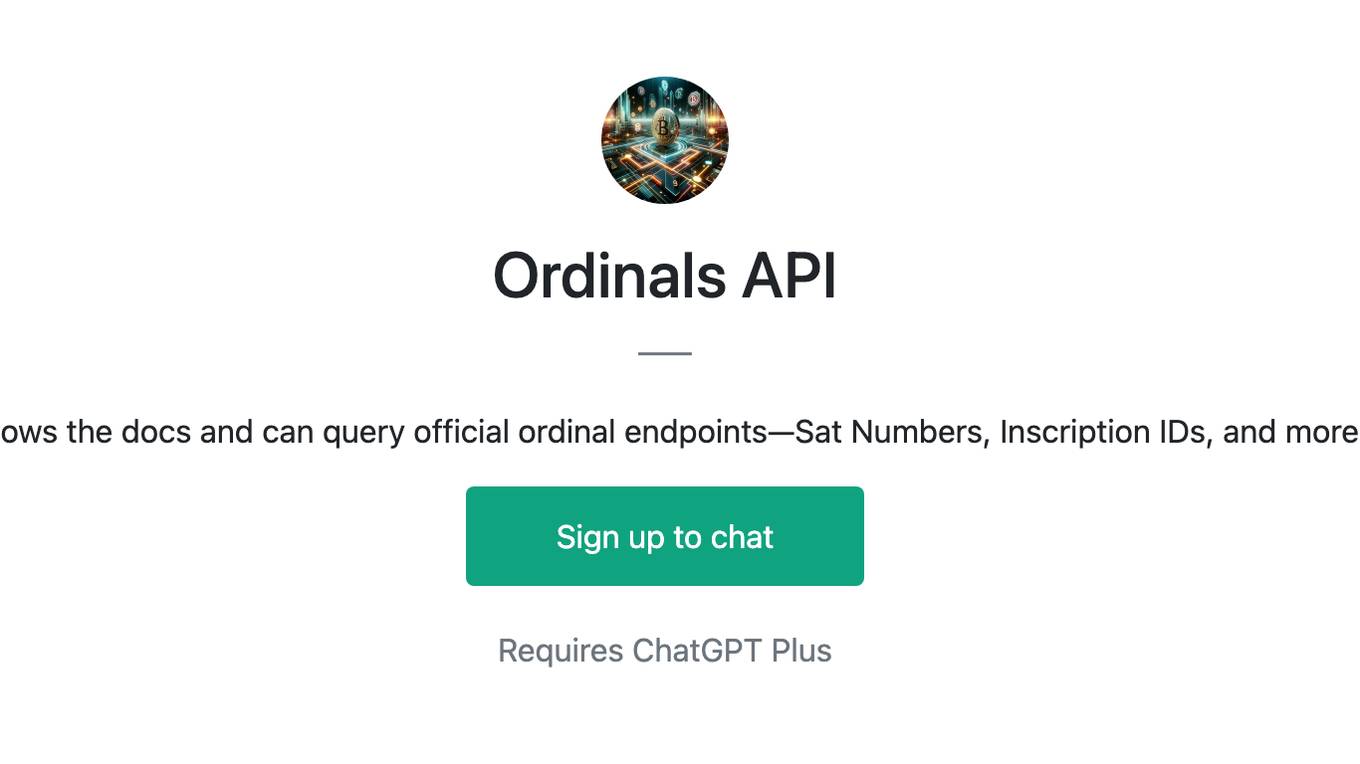
Ordinals API
Knows the docs and can query official ordinal endpoints—Sat Numbers, Inscription IDs, and more.
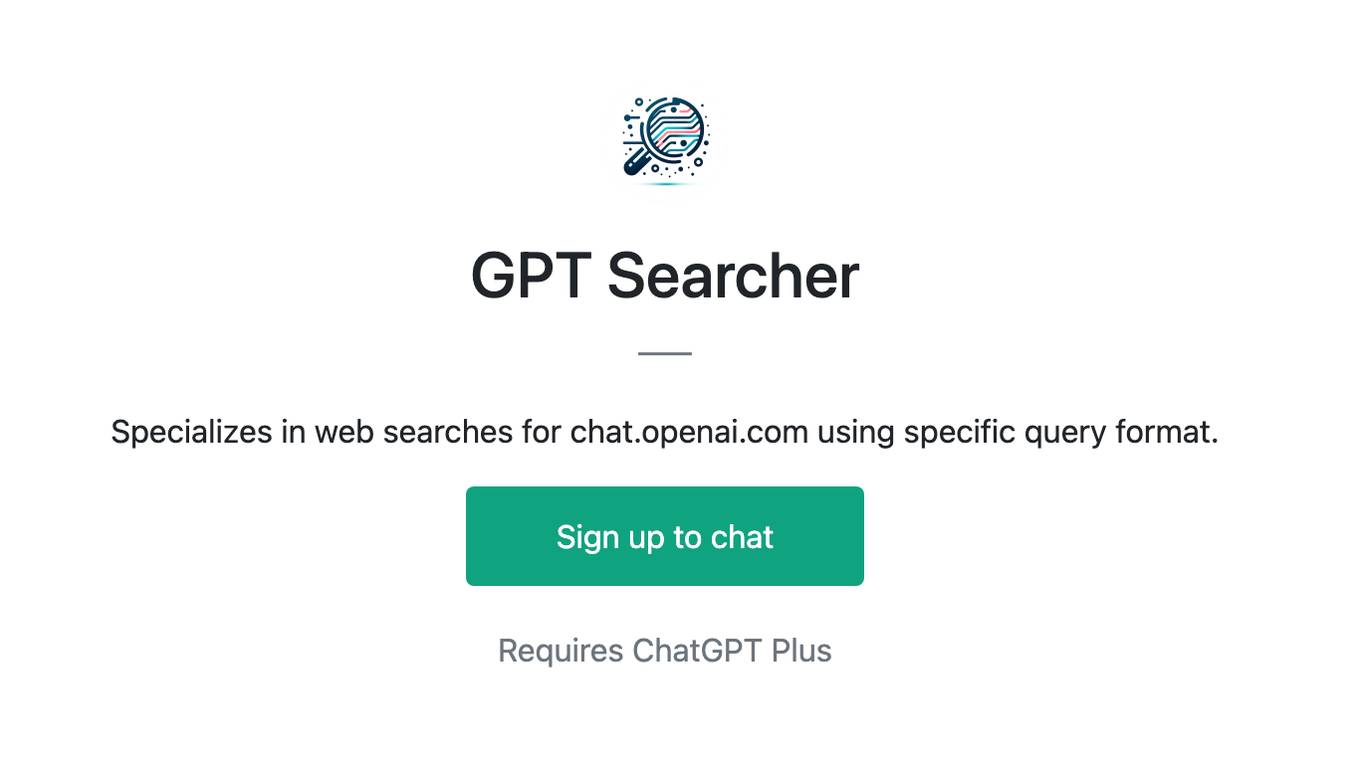
GPT Searcher
Specializes in web searches for chat.openai.com using specific query format.
